Open Menu
Search
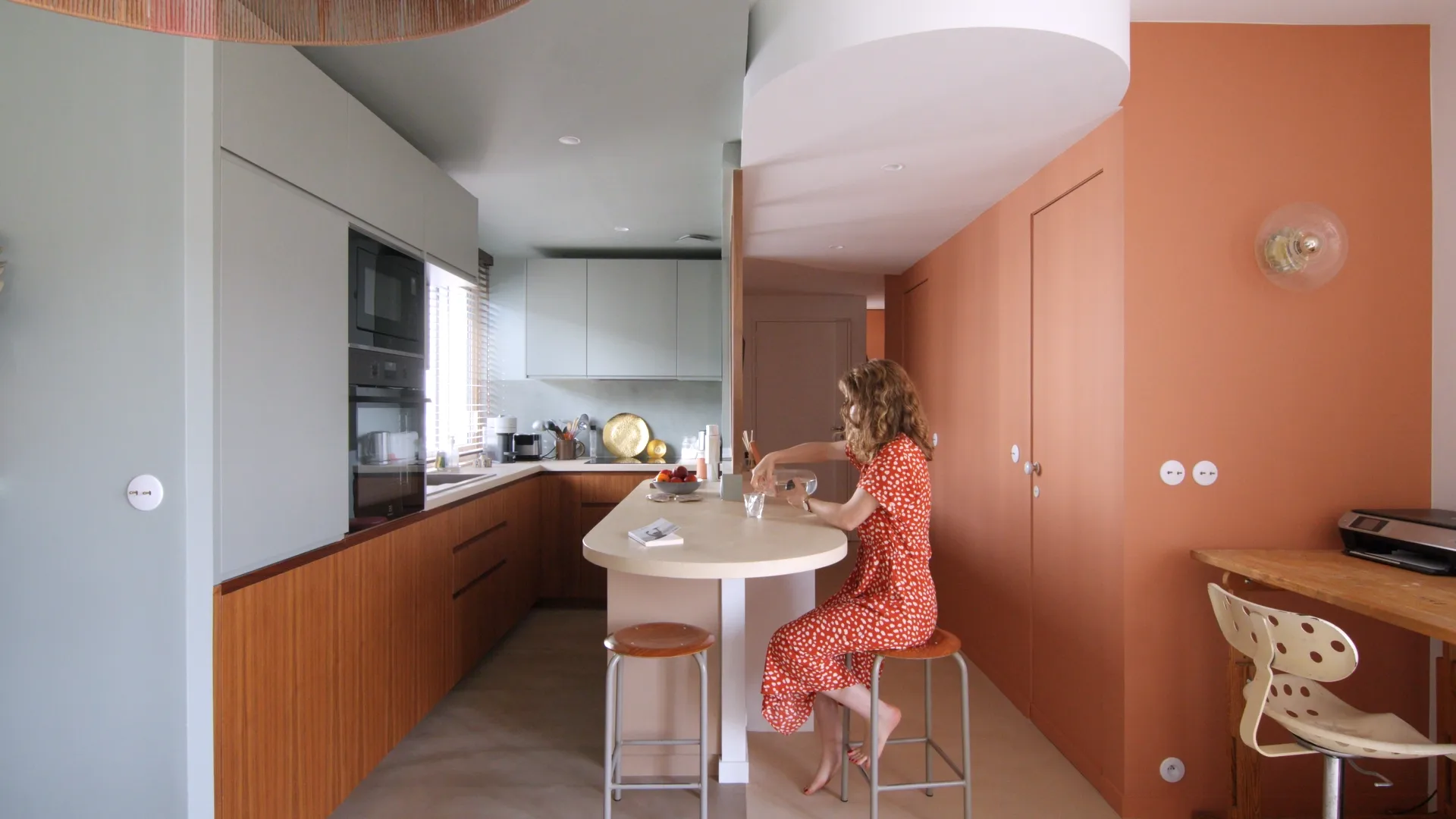
Interior Designer Joséphine Balayn wanted to create a luminous pied-à-terre for a client splitting their time between Paris and the south of France. Organised by warm hues and soft curves, the 56sqm/603sqft home is a trove of family treasures and modern comforts – all with a morning view of the Eiffel Tower.
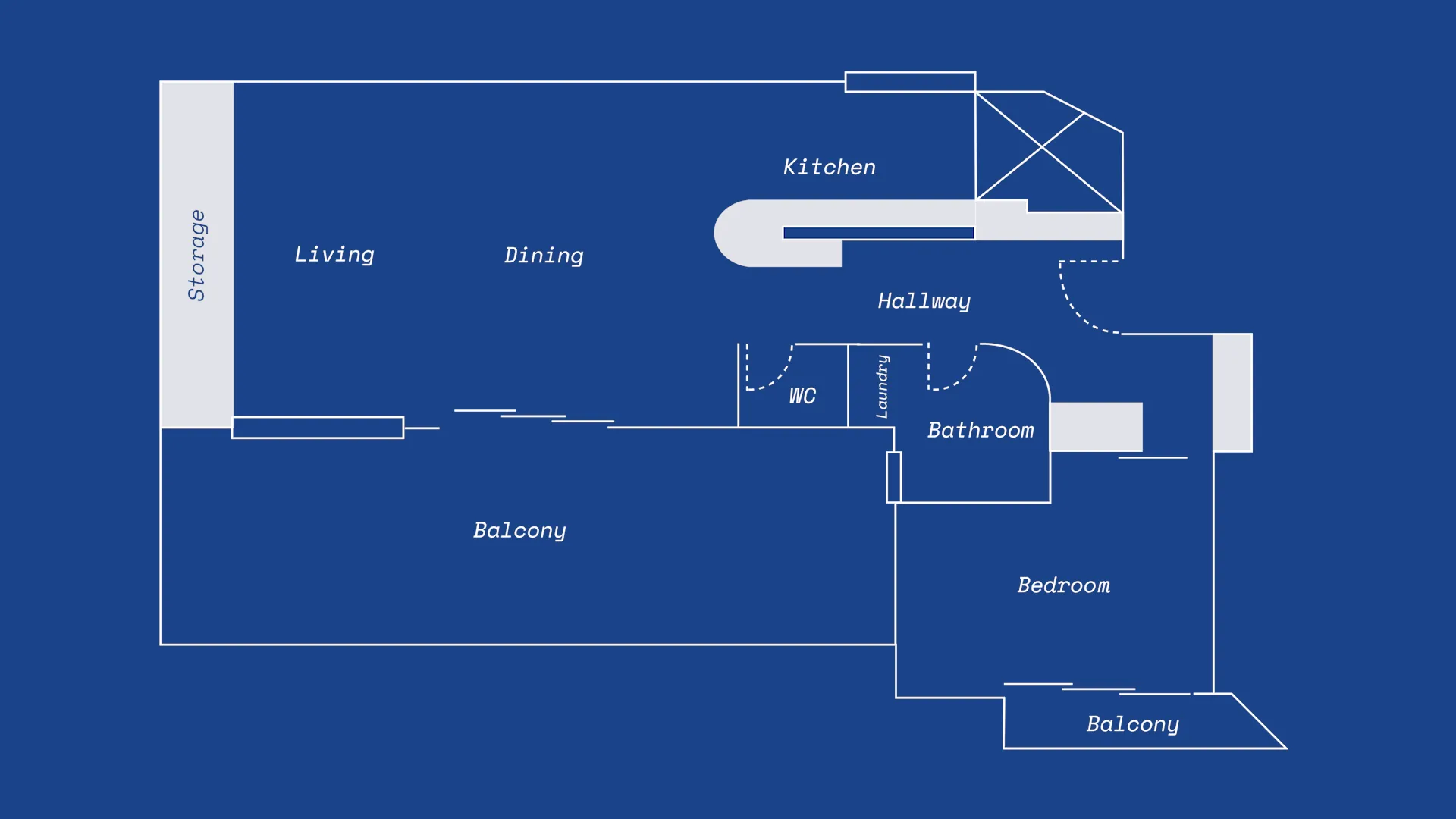
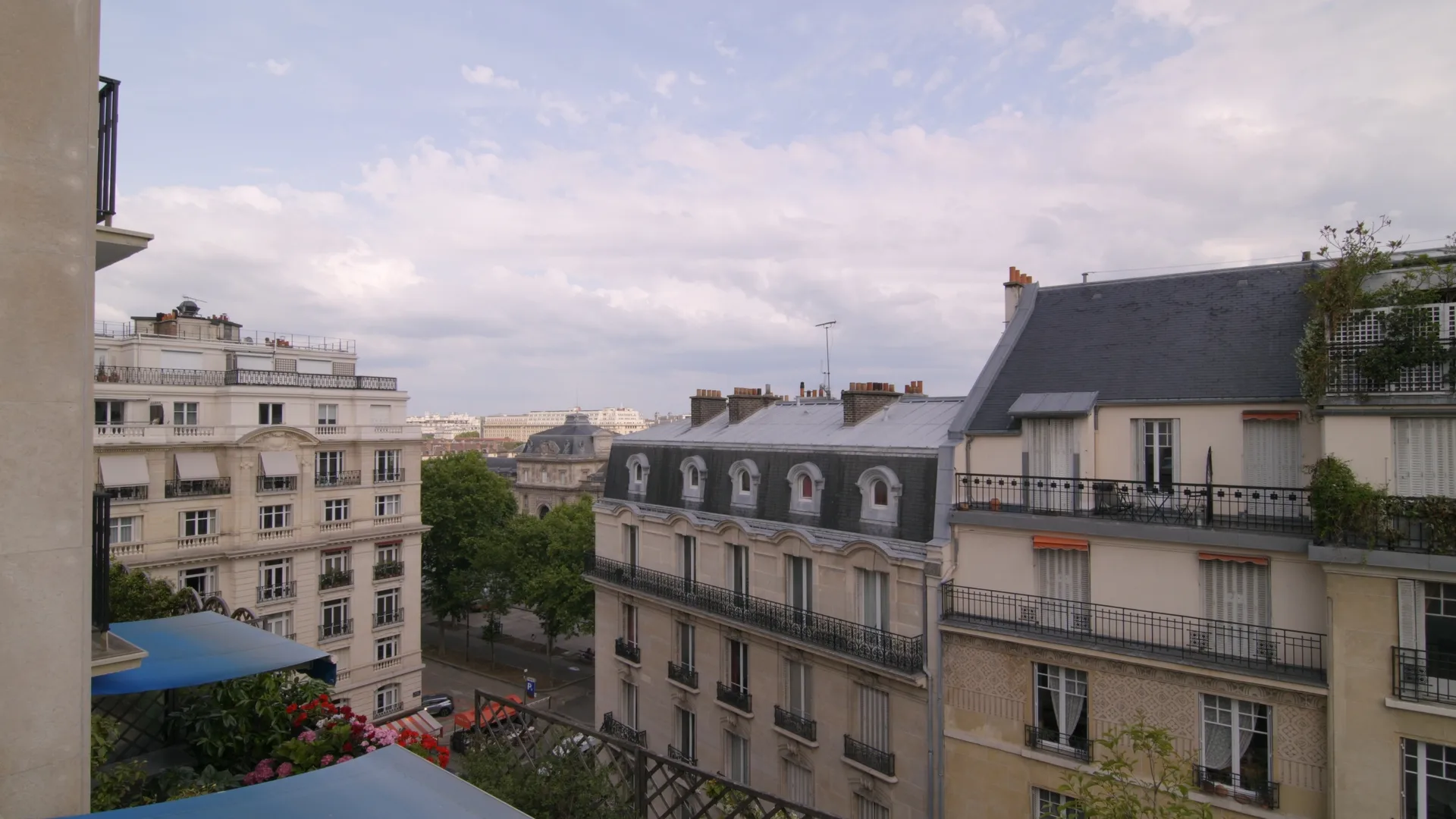
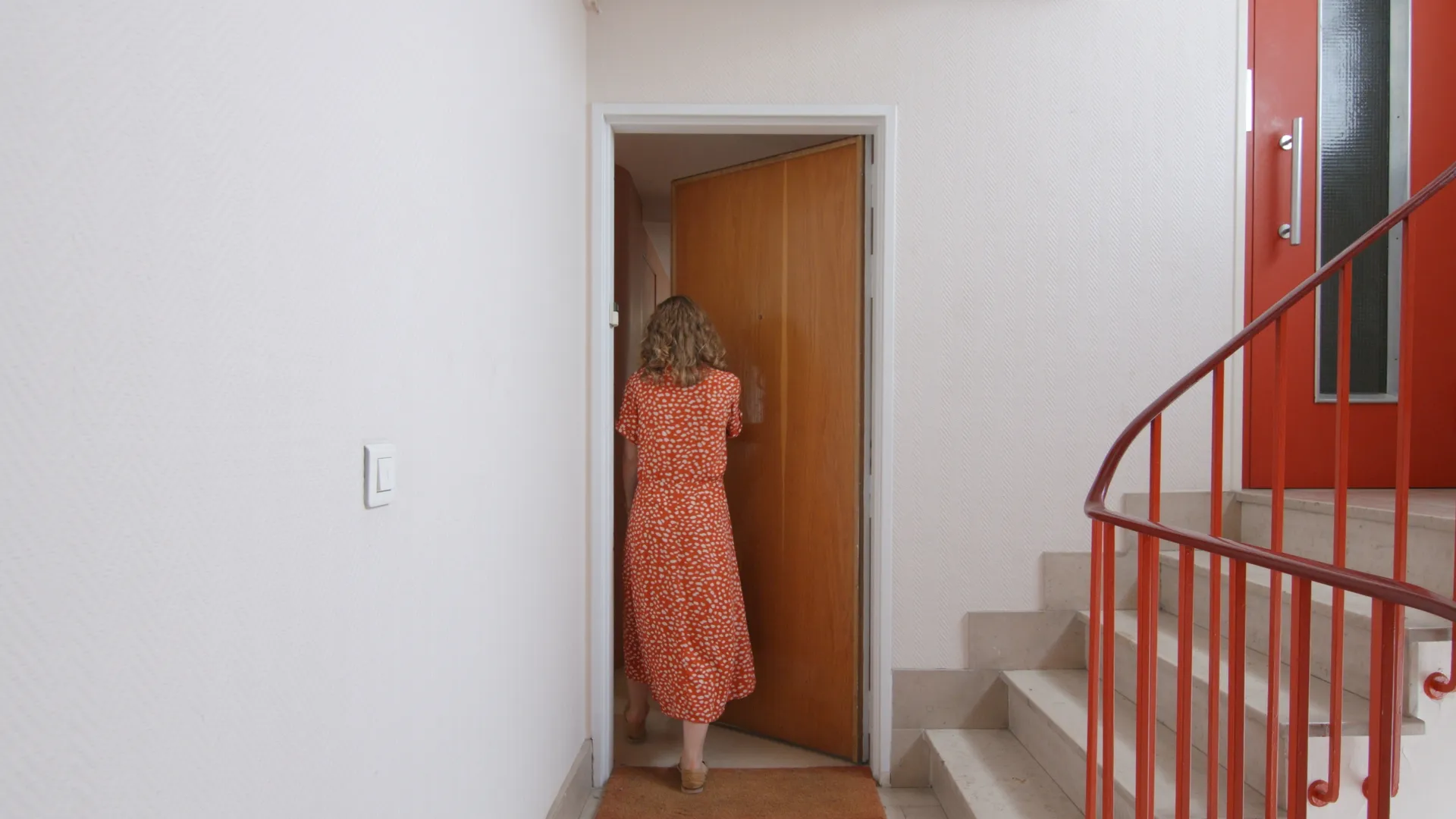
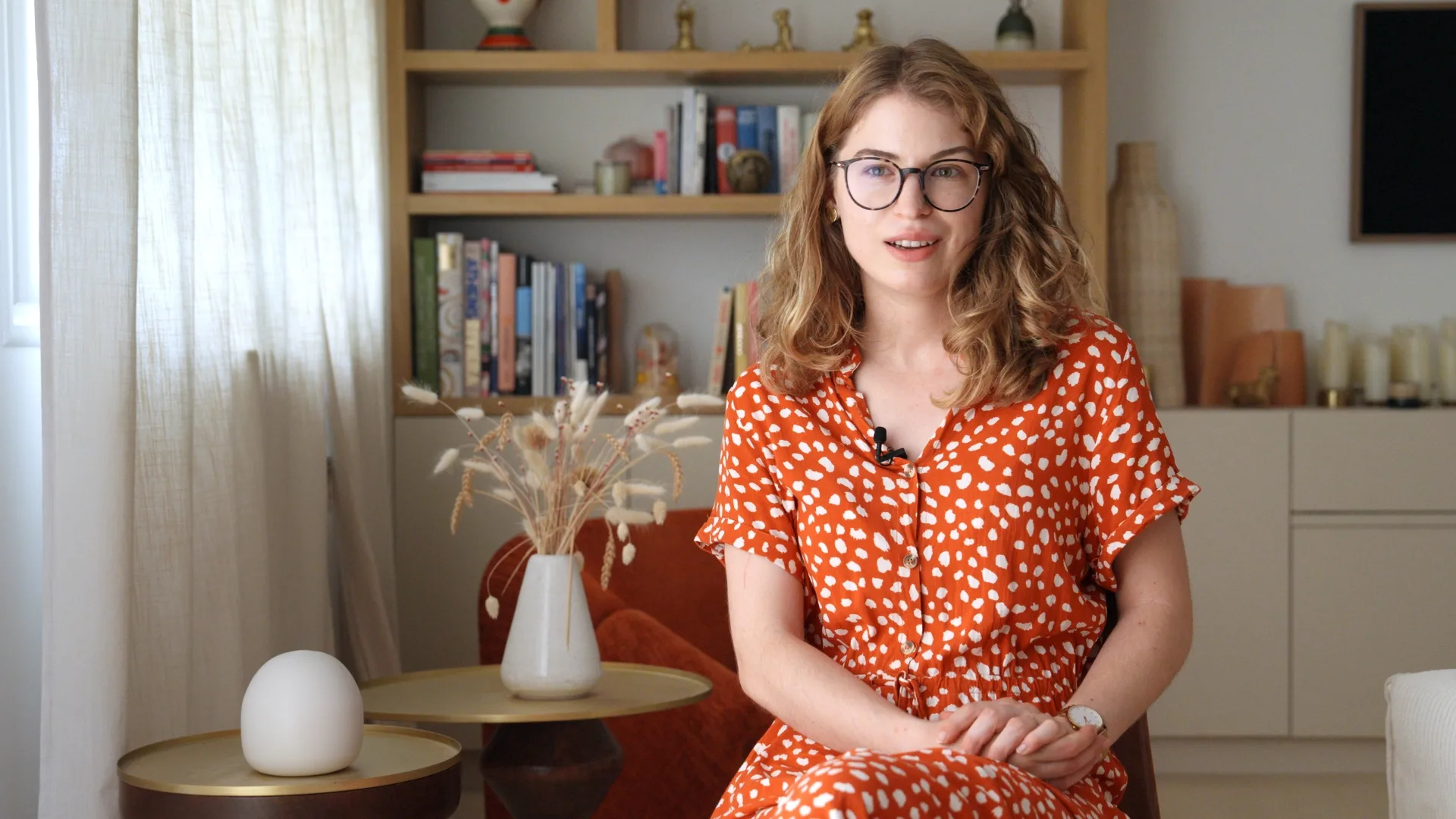
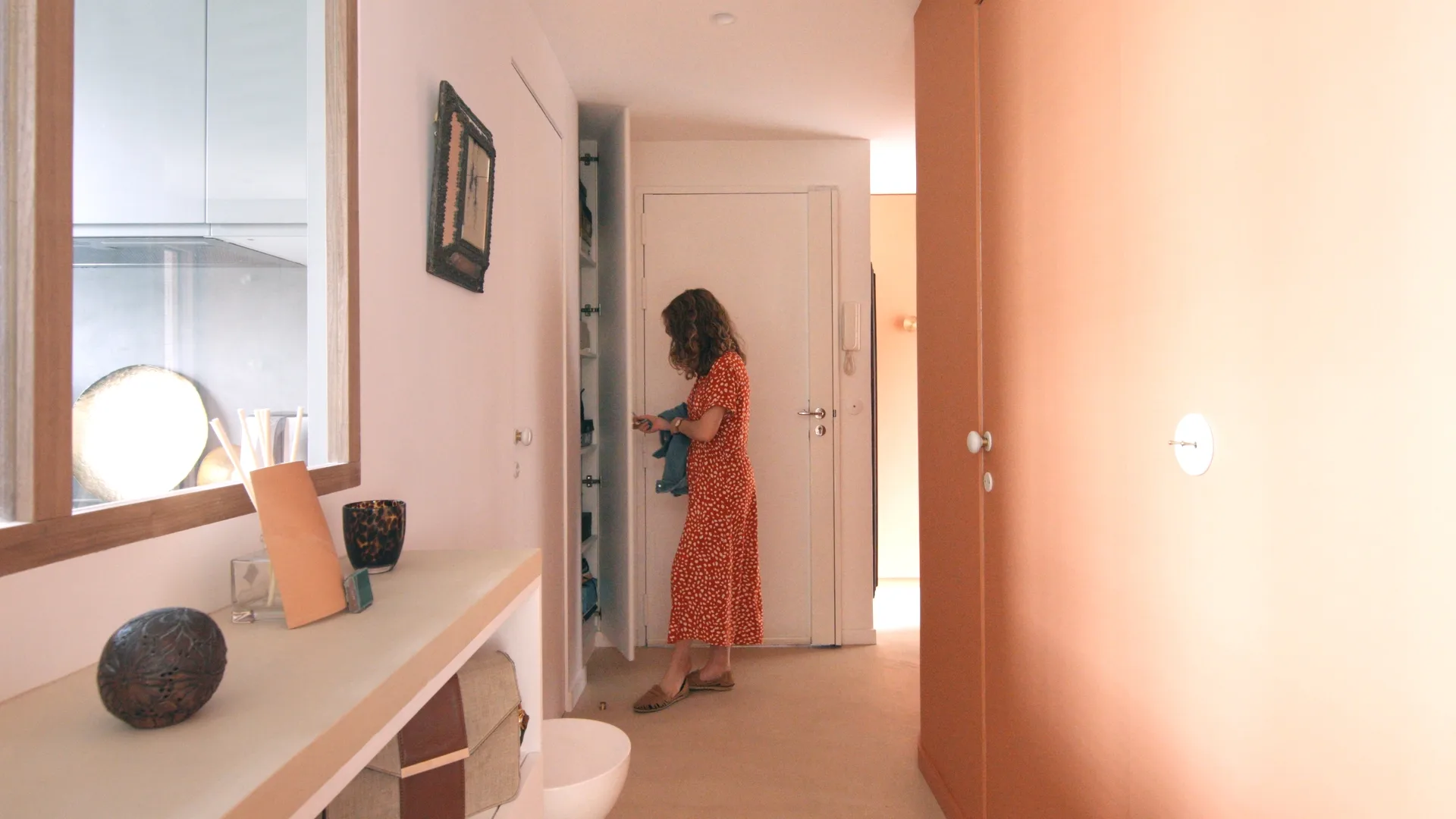
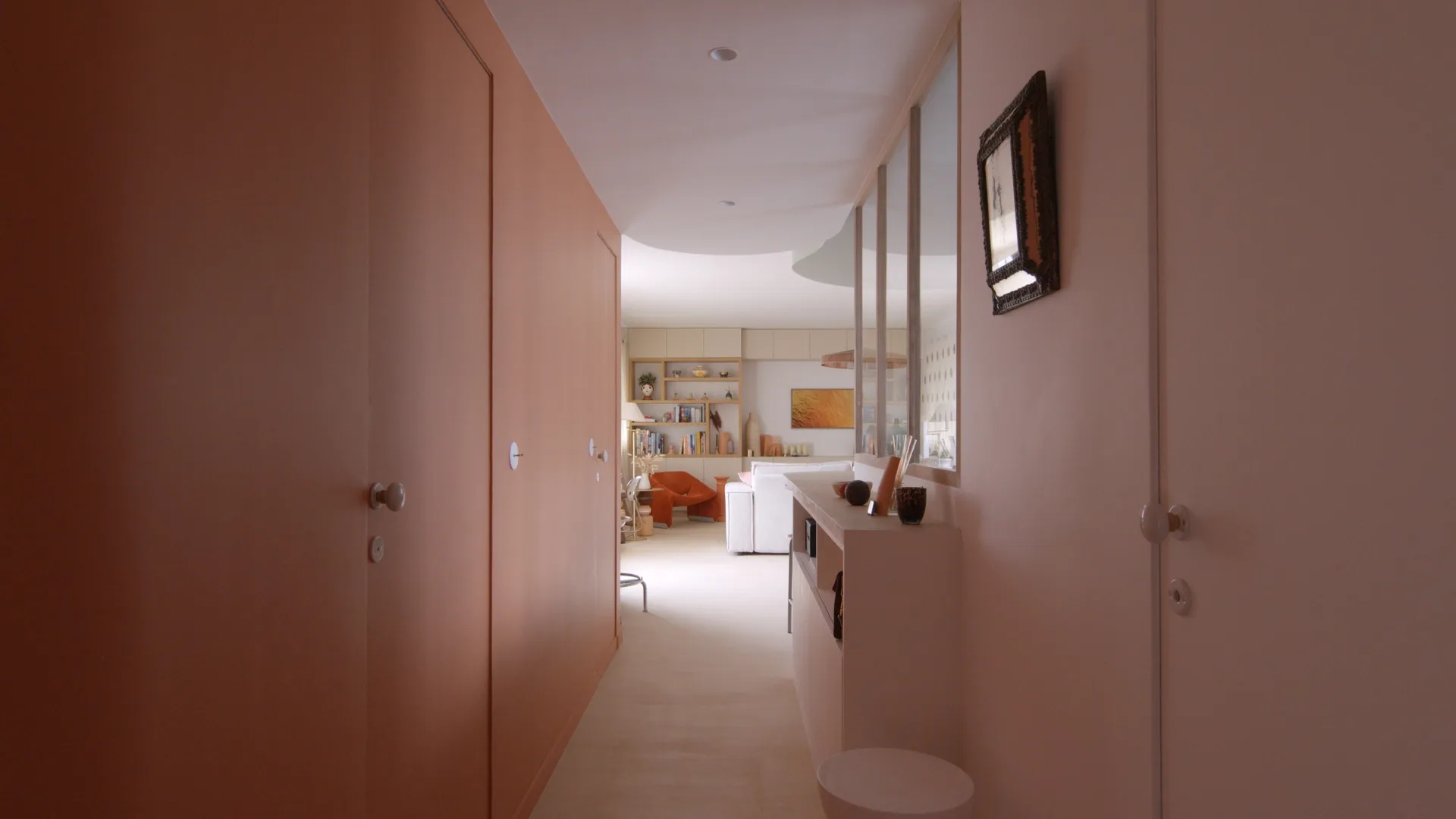
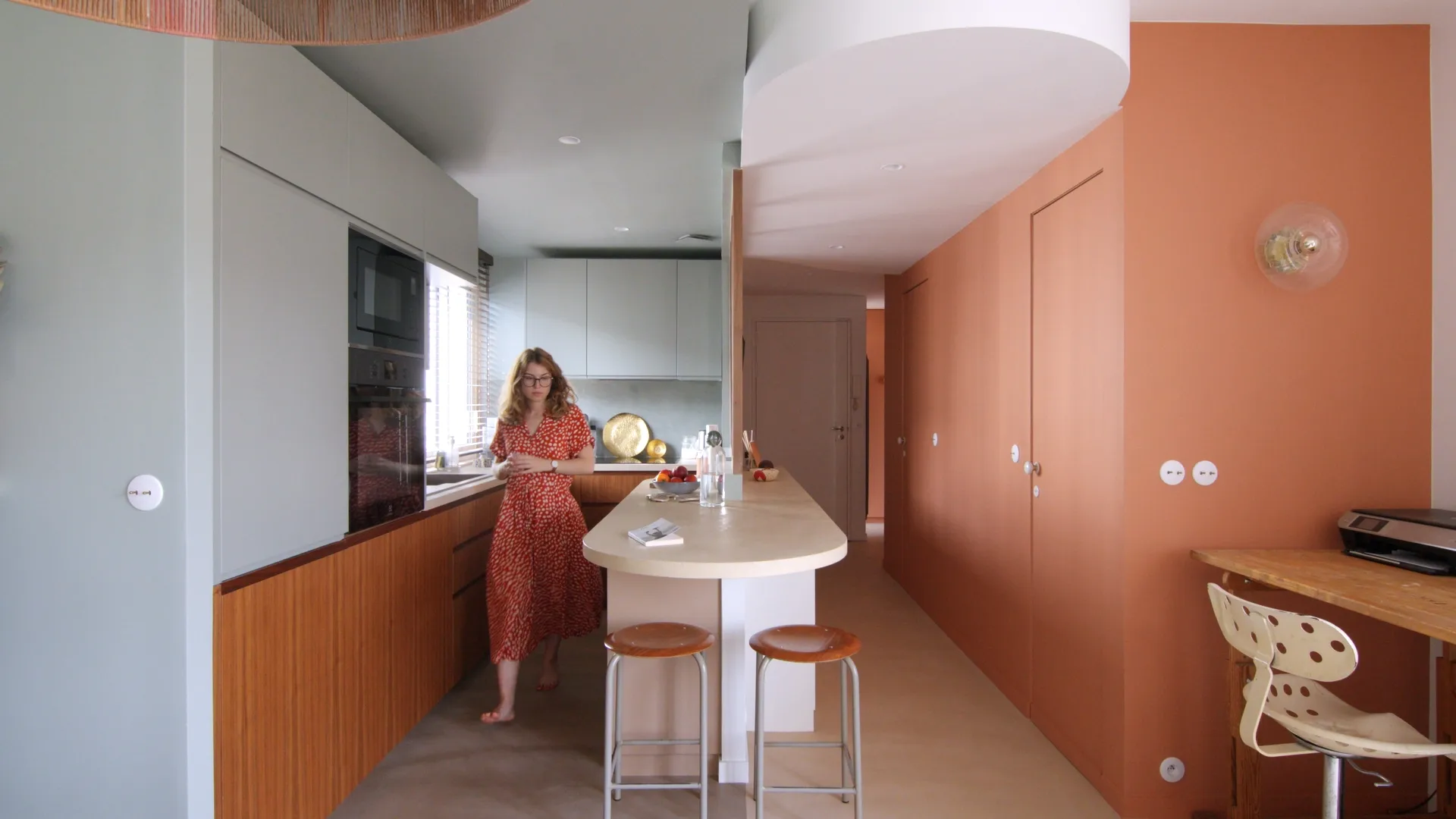
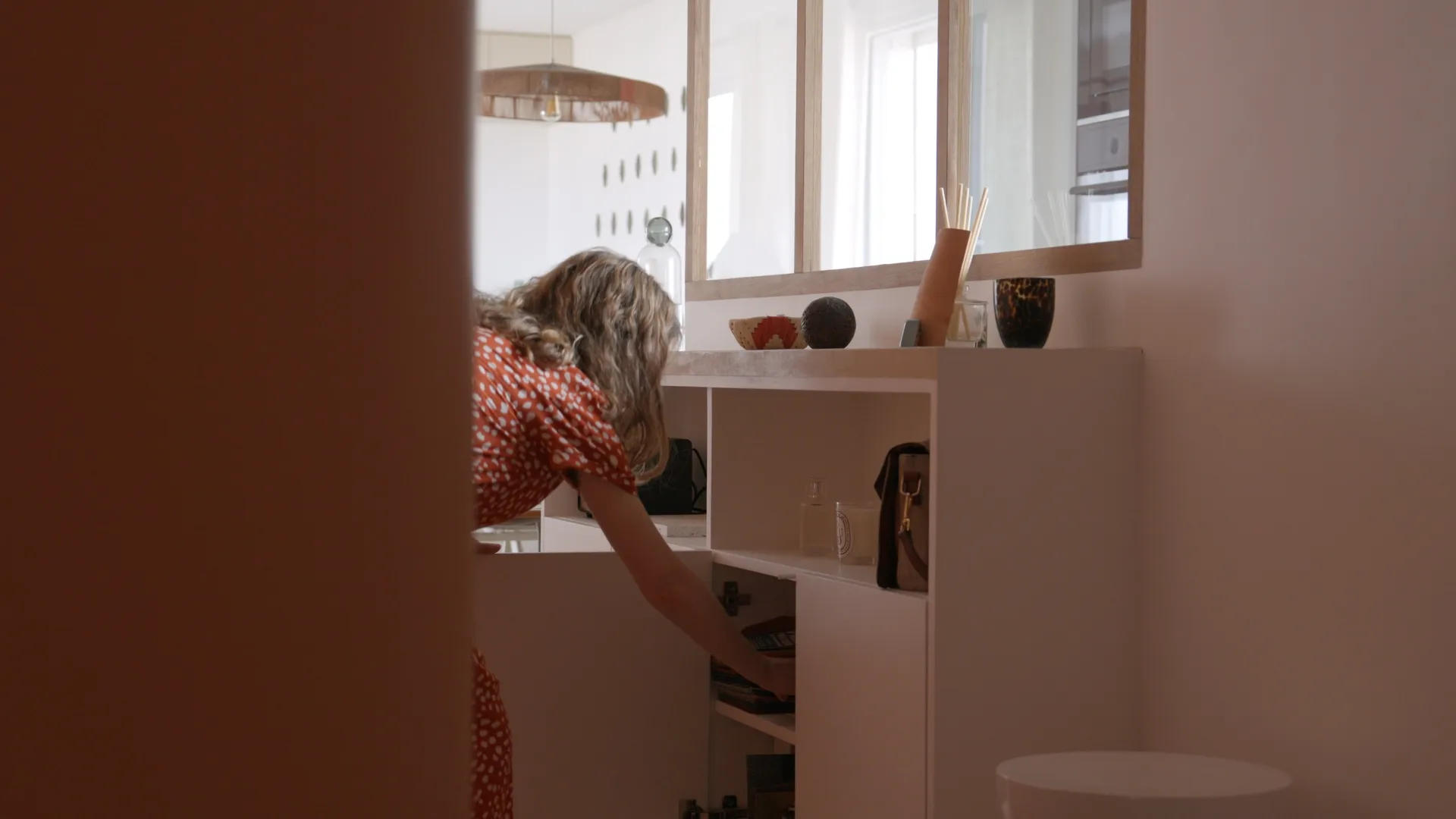
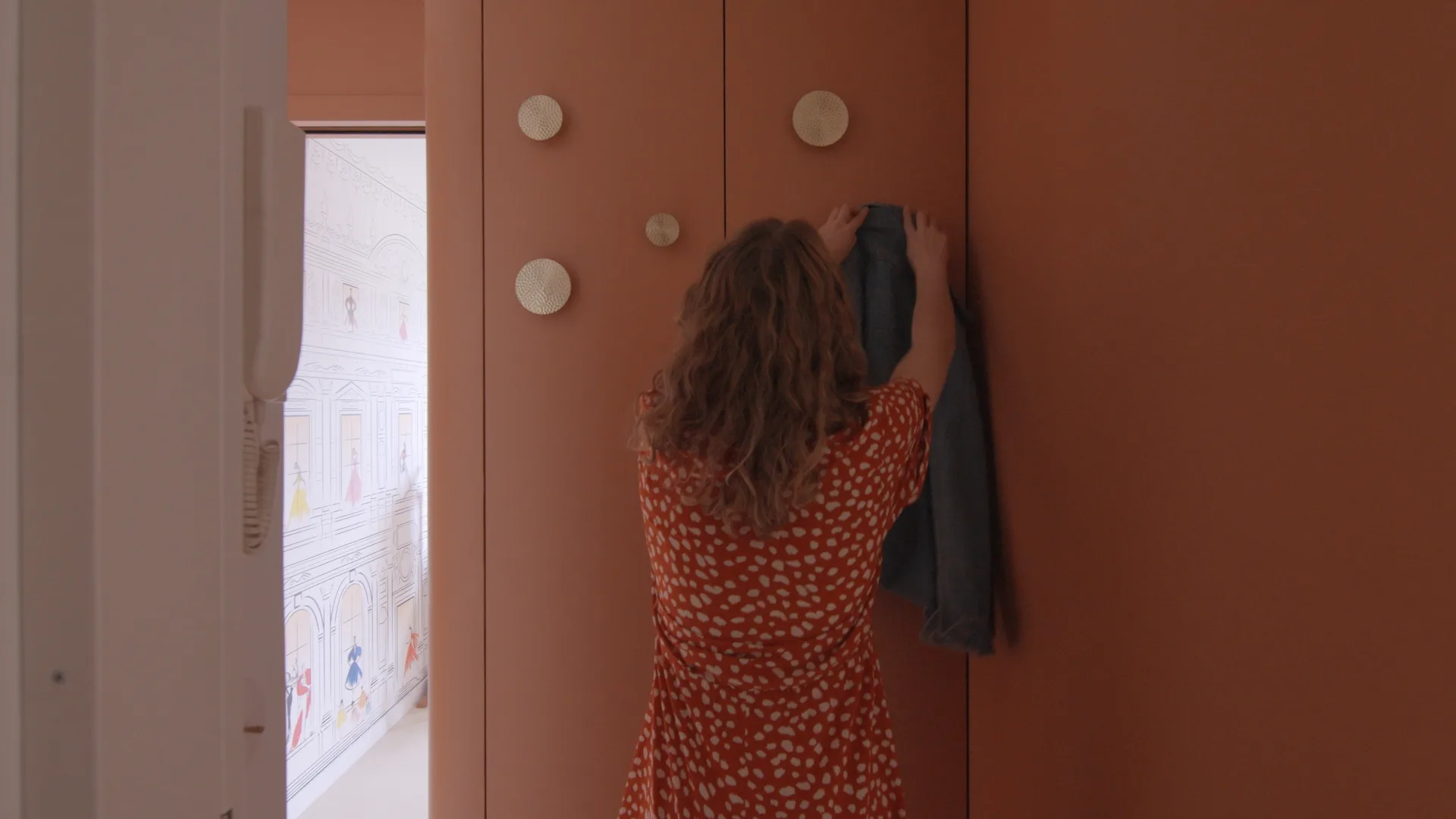
“Our client wanted the space to feel more luminous and easy to live in.”
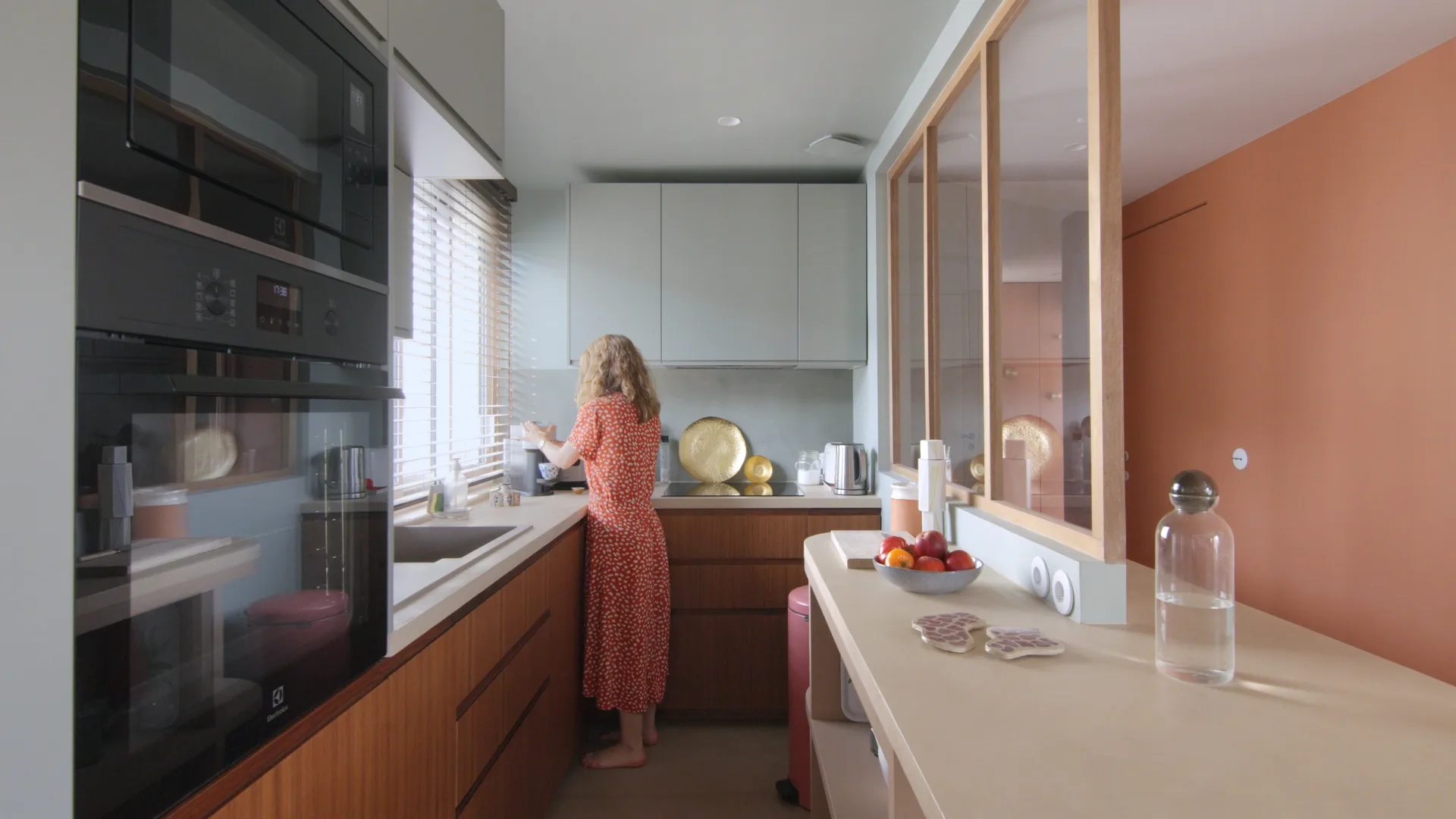
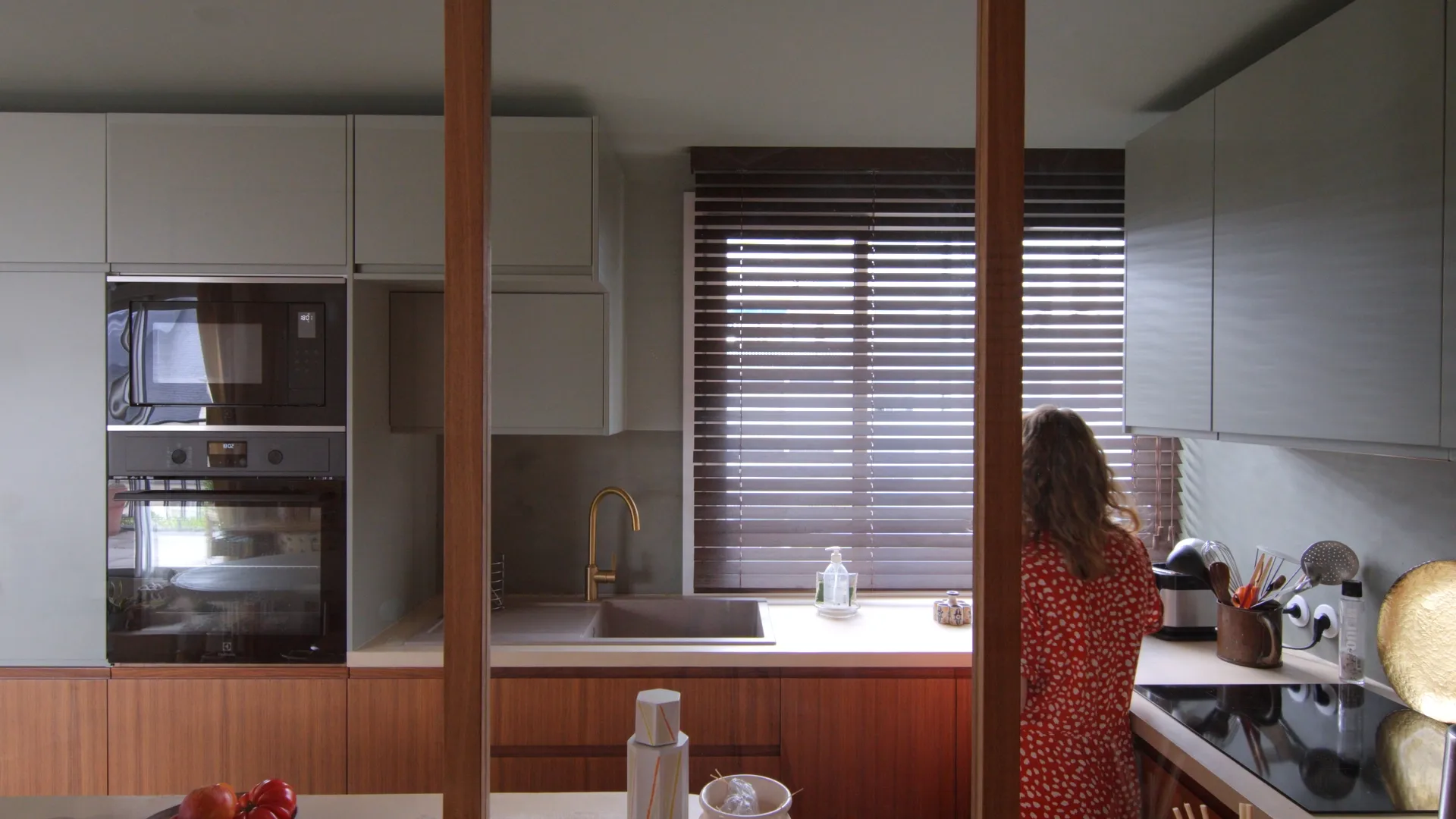
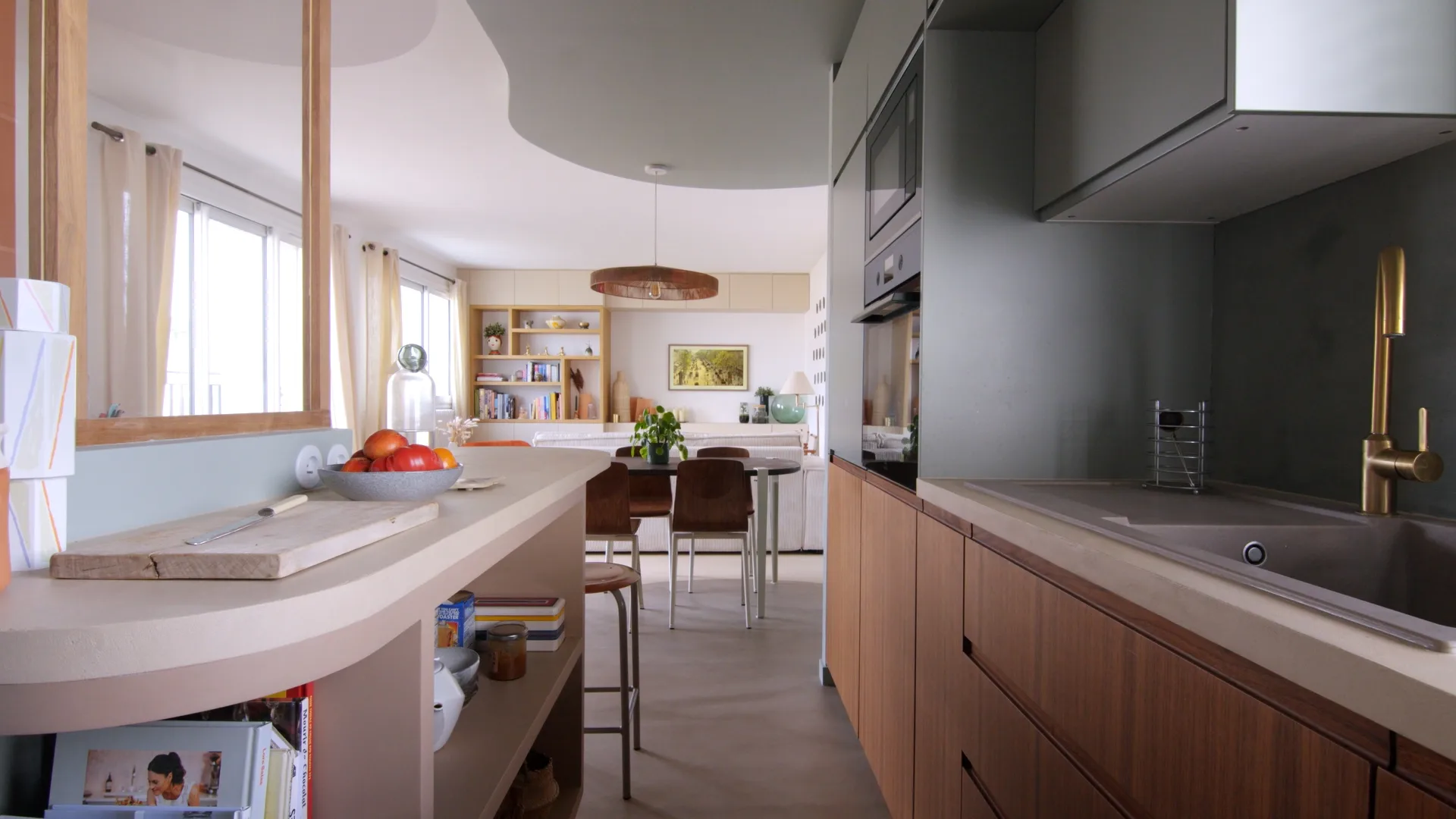
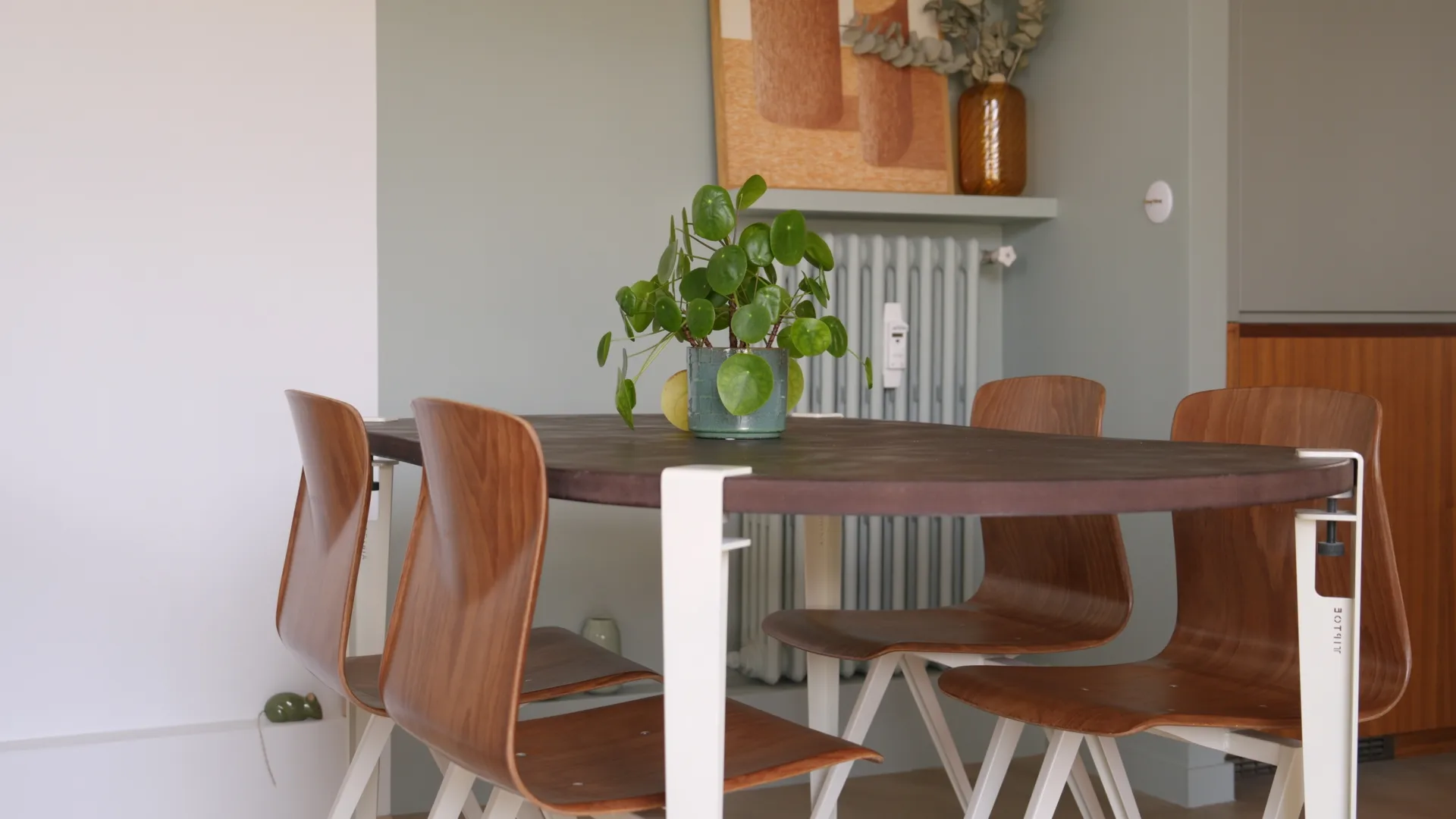
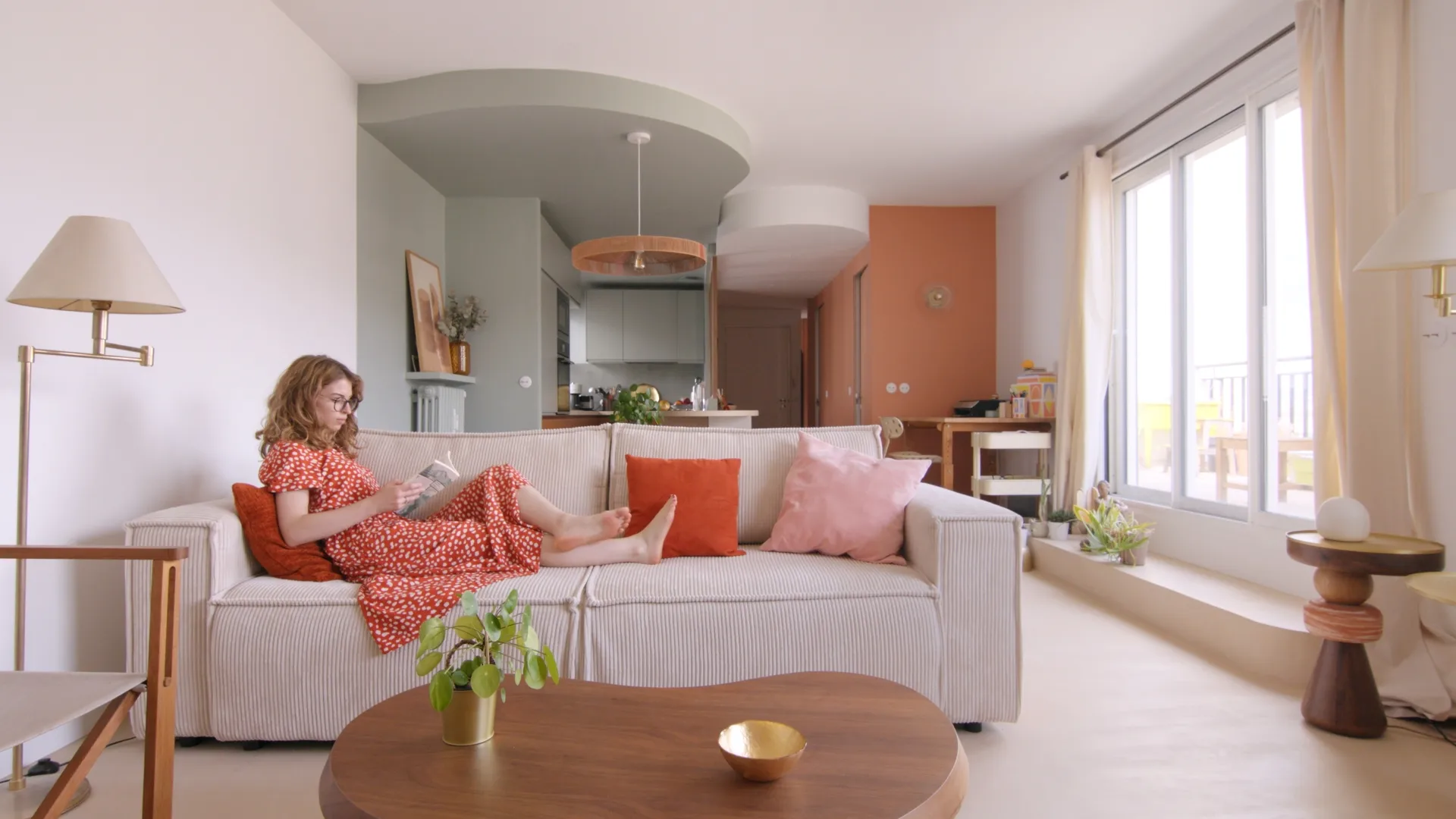
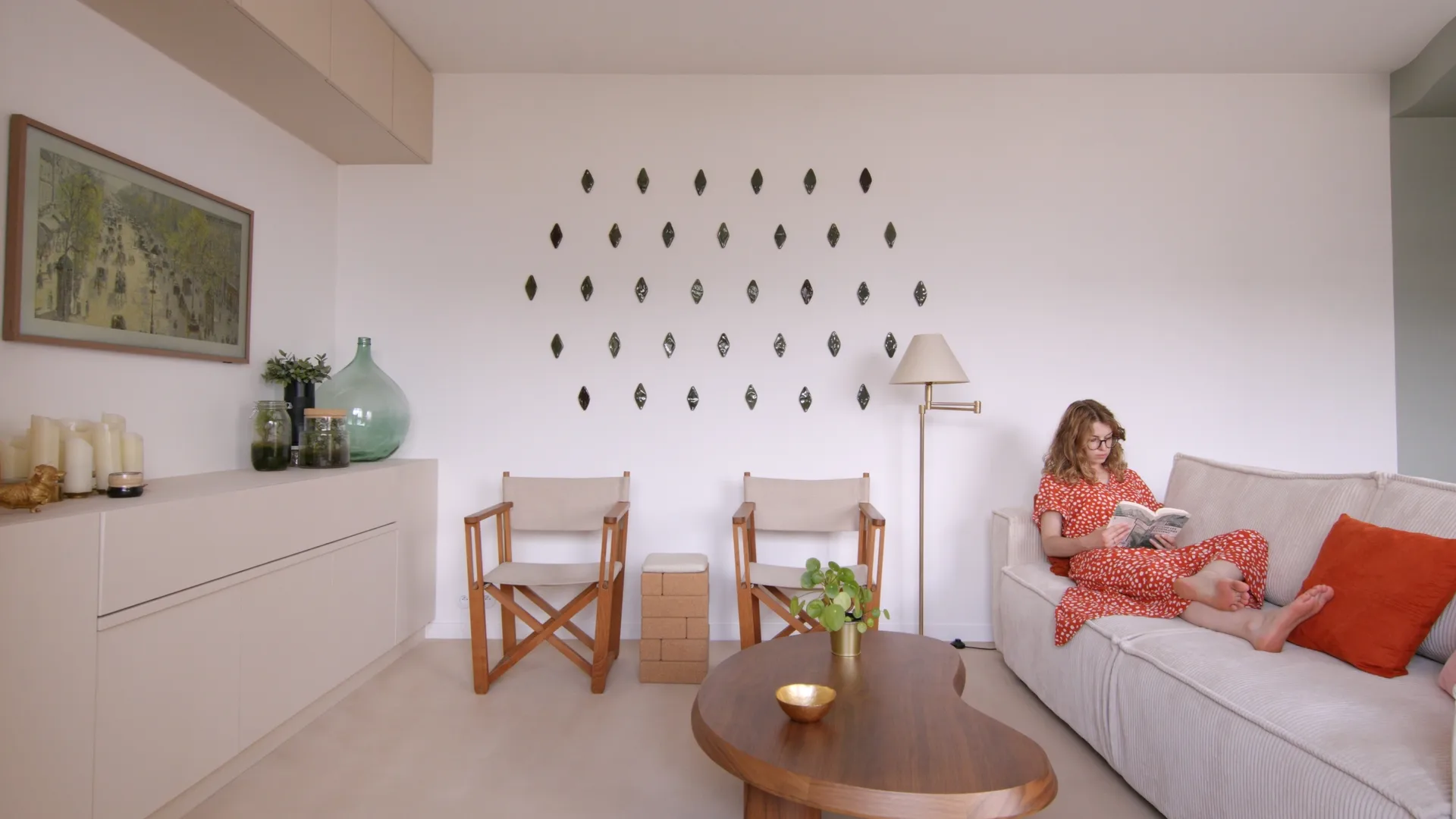
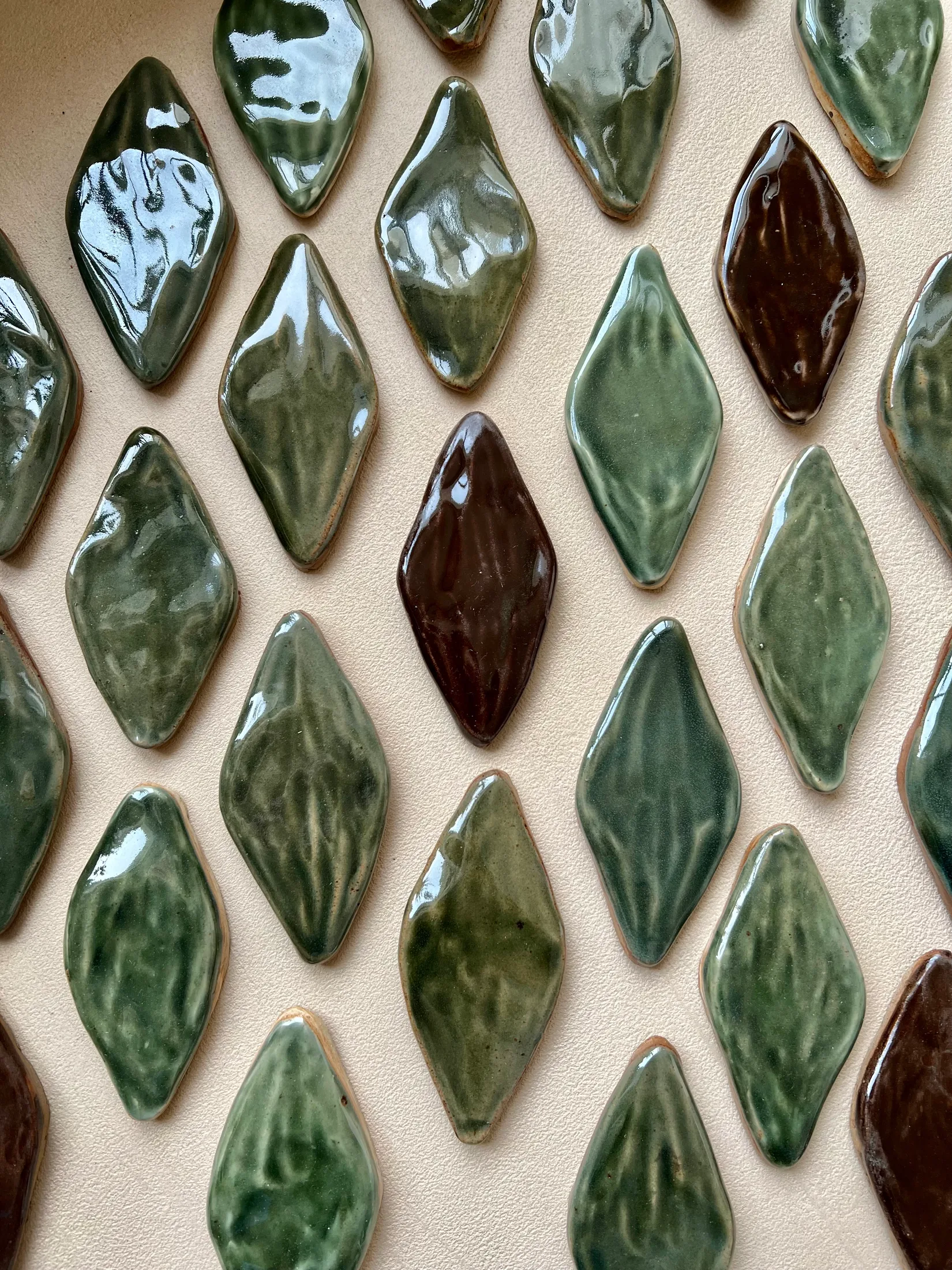
“Designing a small space asks you to really consider the habits of the person who lives there and how they use the space. The challenge lies in combining aesthetics, functionality and simplicity.”
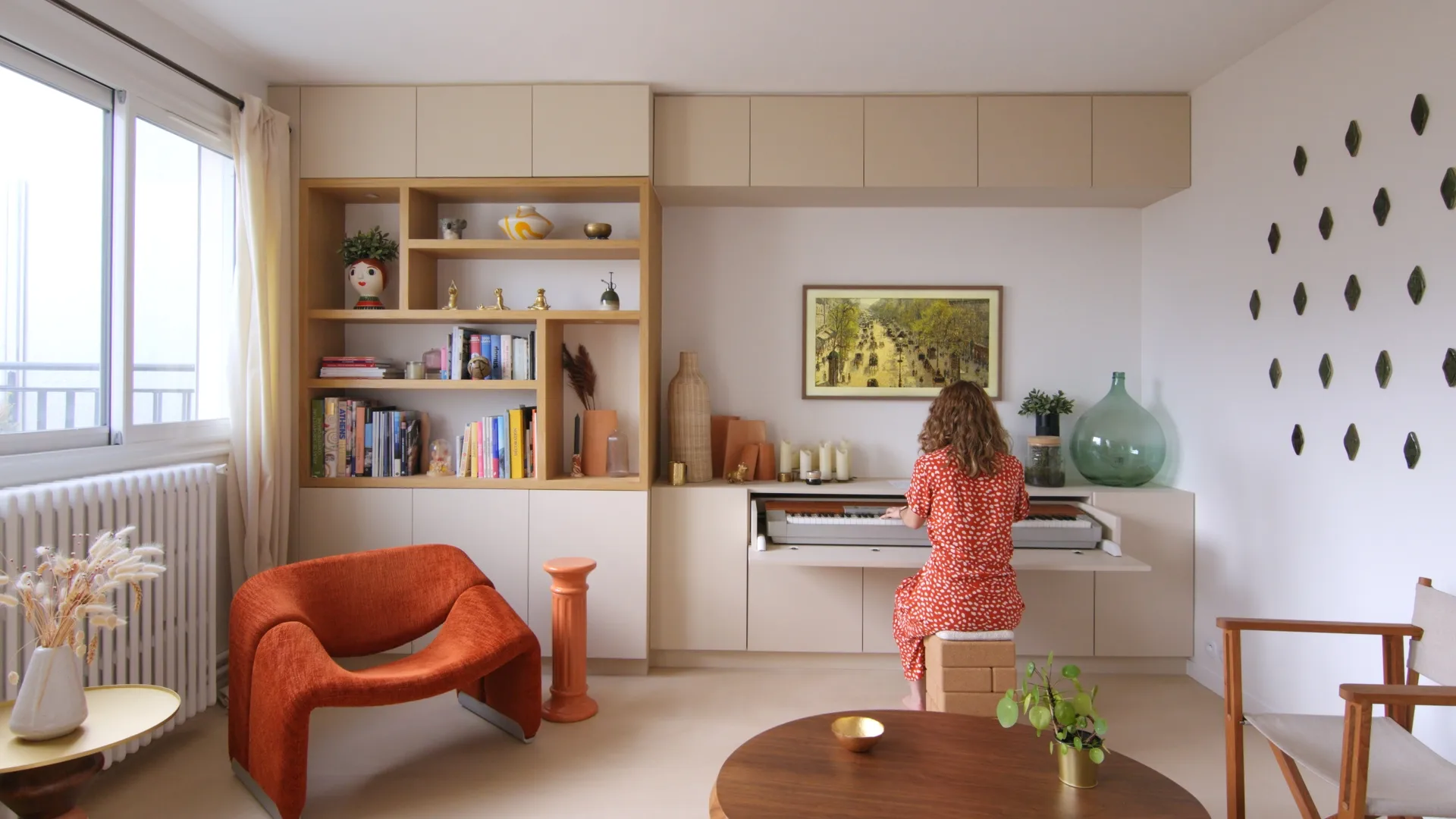
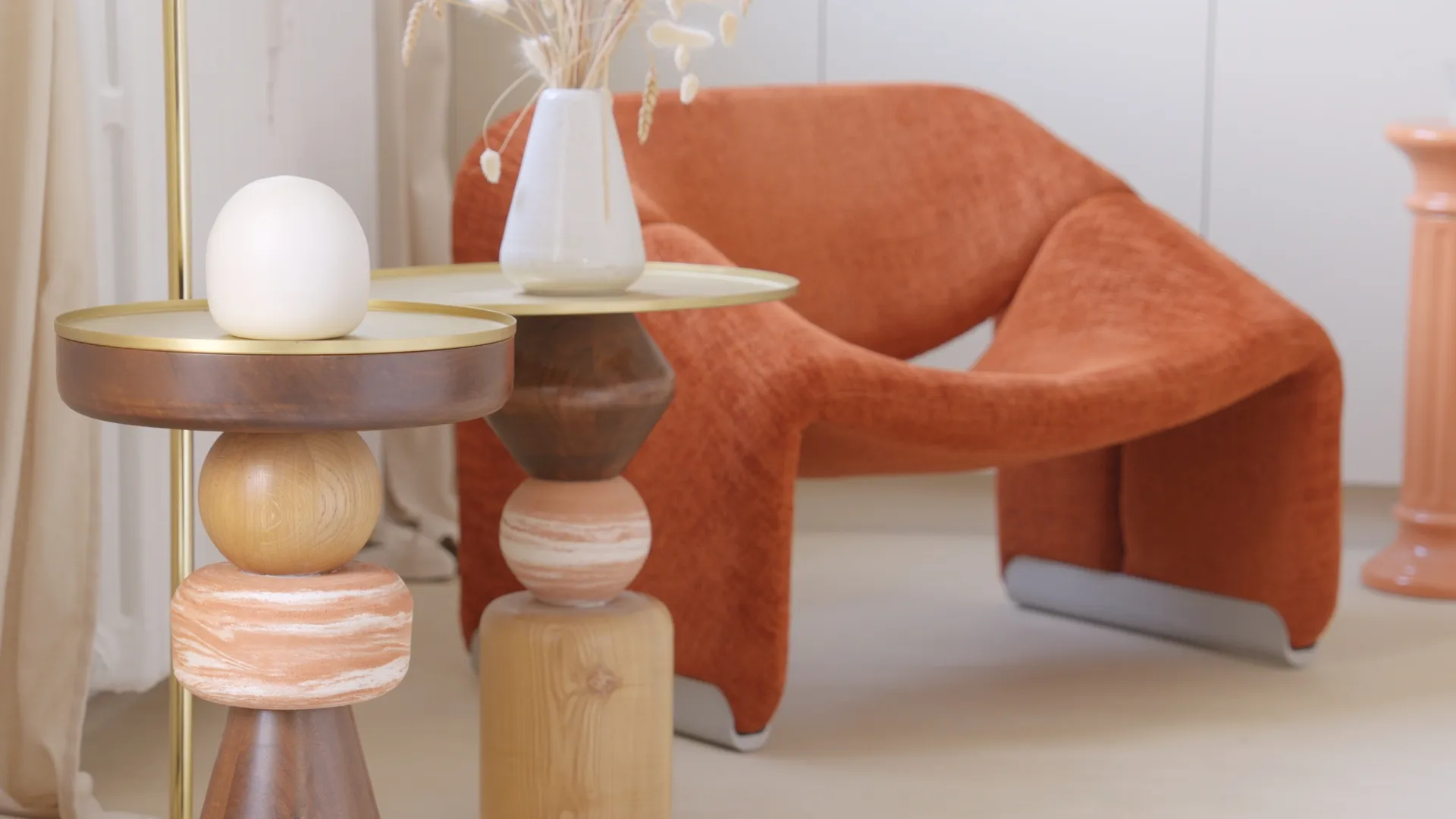
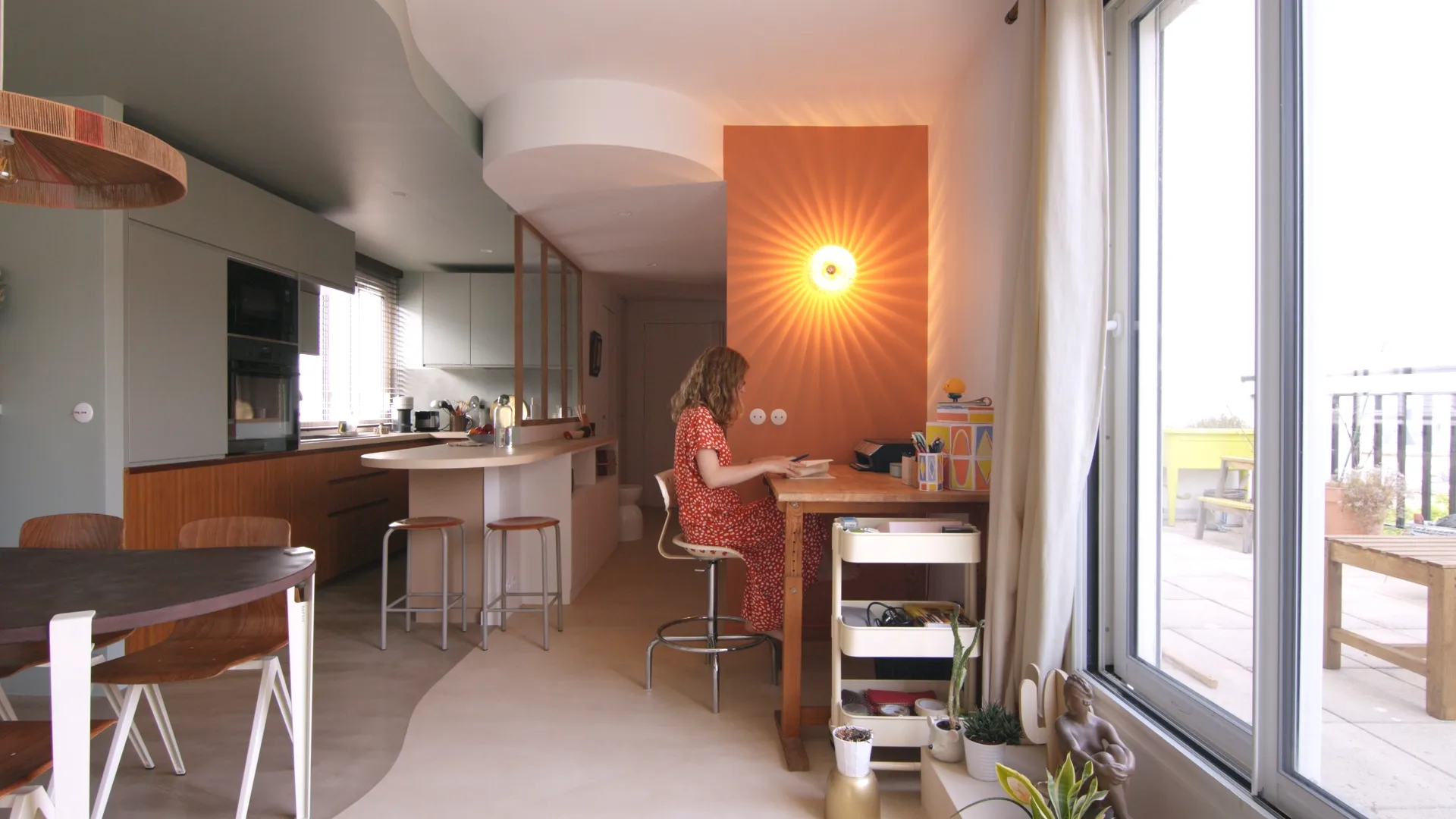
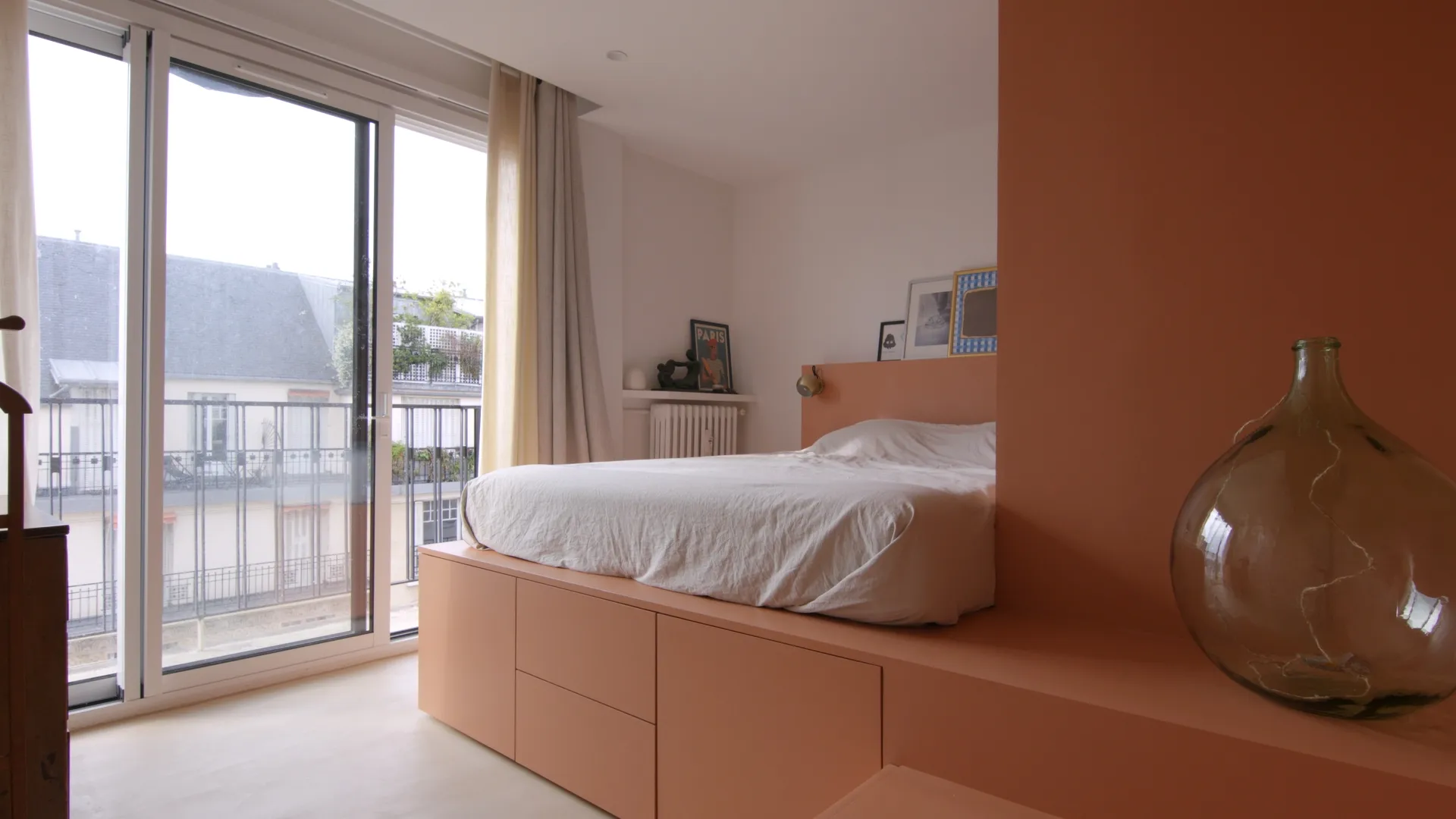
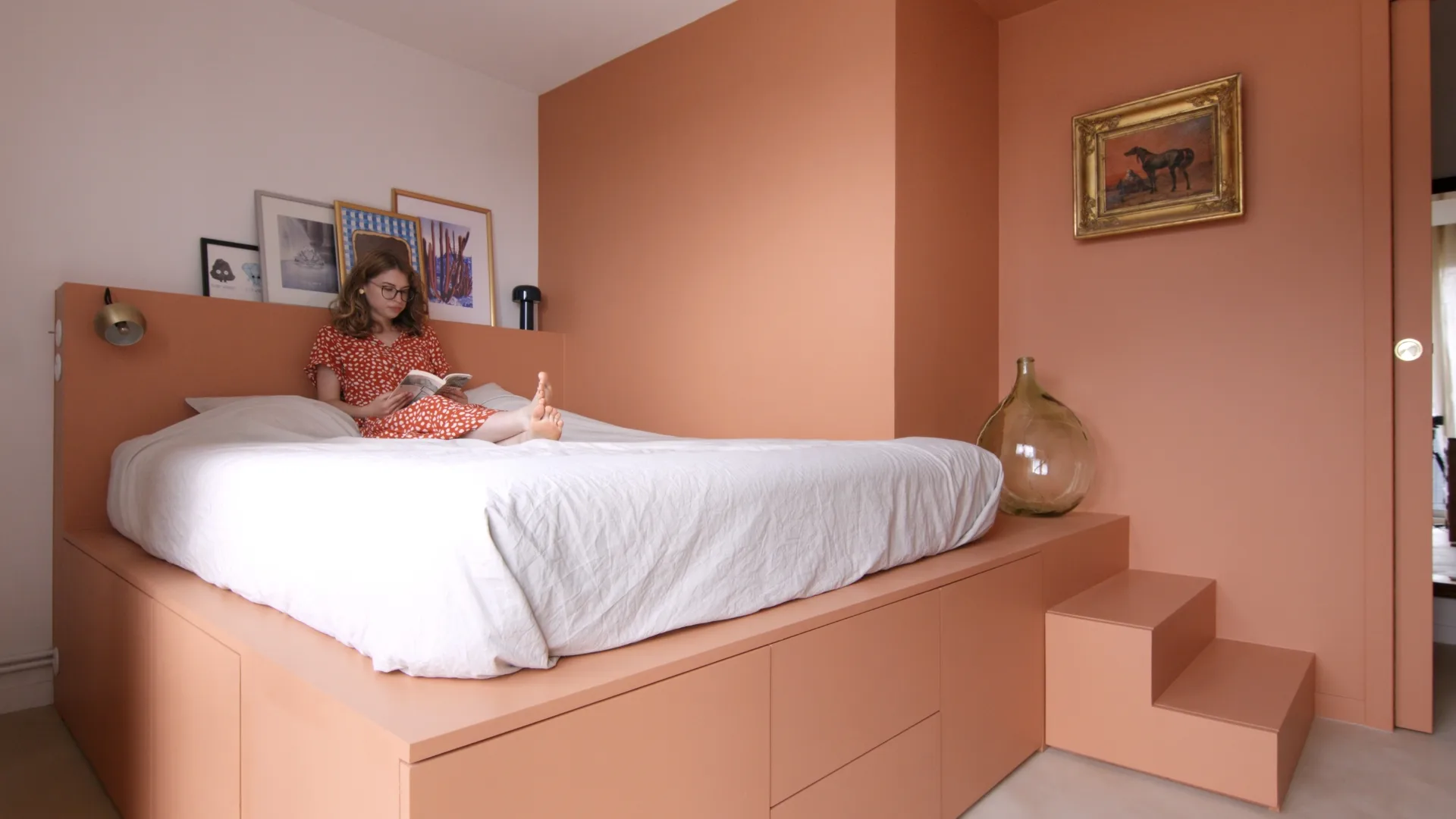
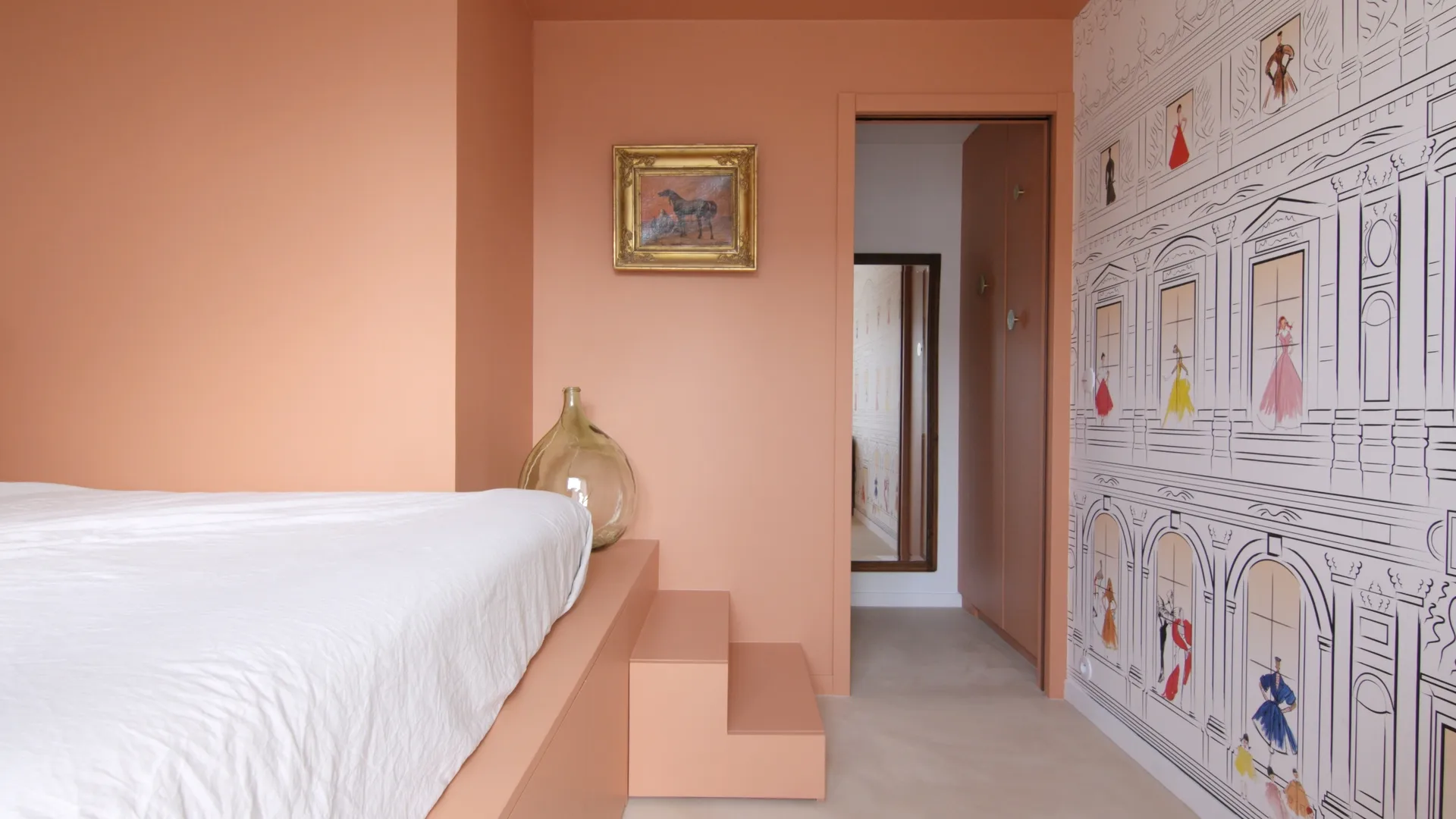
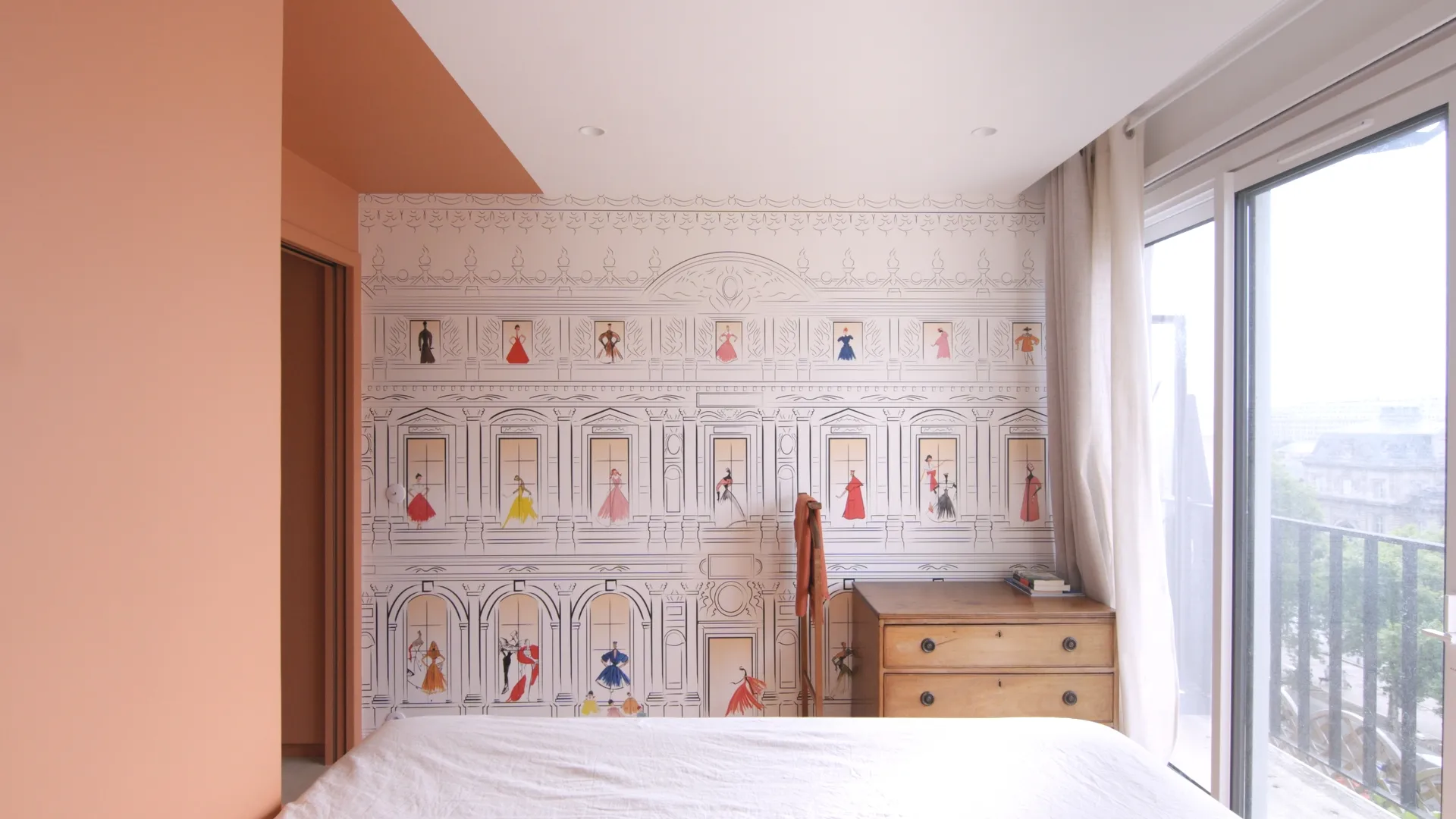
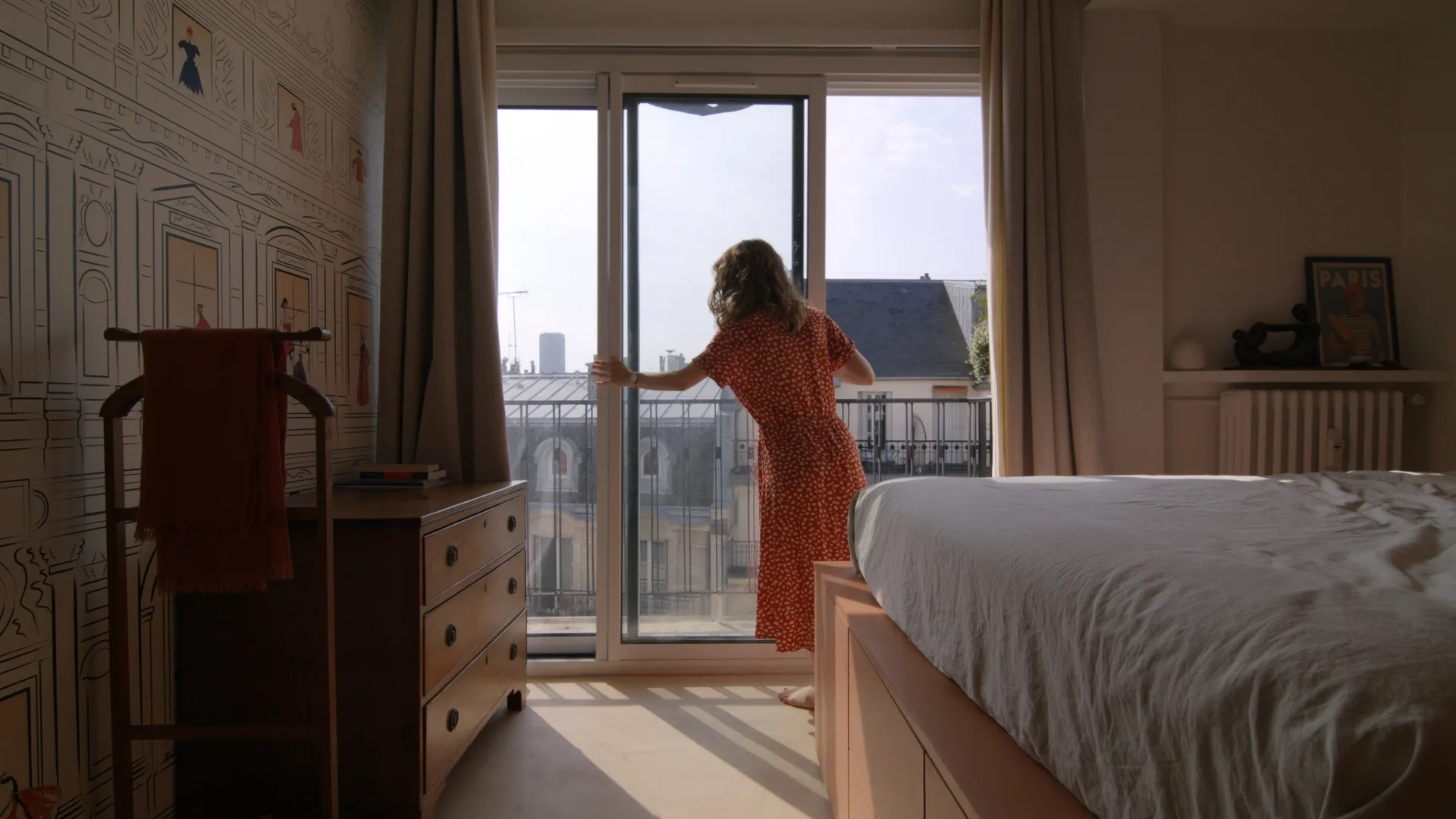
“I think the future of urban living is not about constructing new buildings but renovating and upgrading what already exists.”
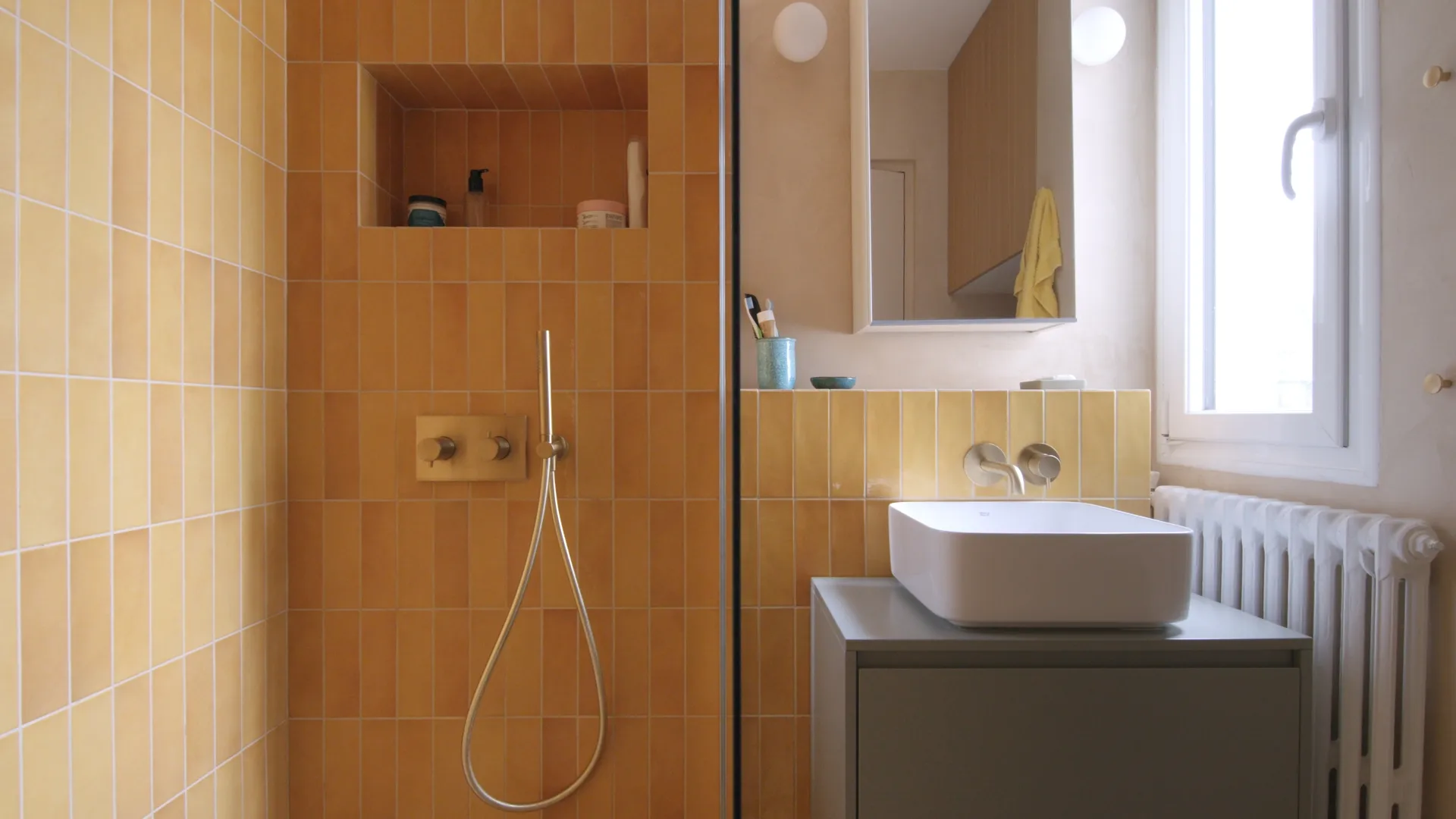
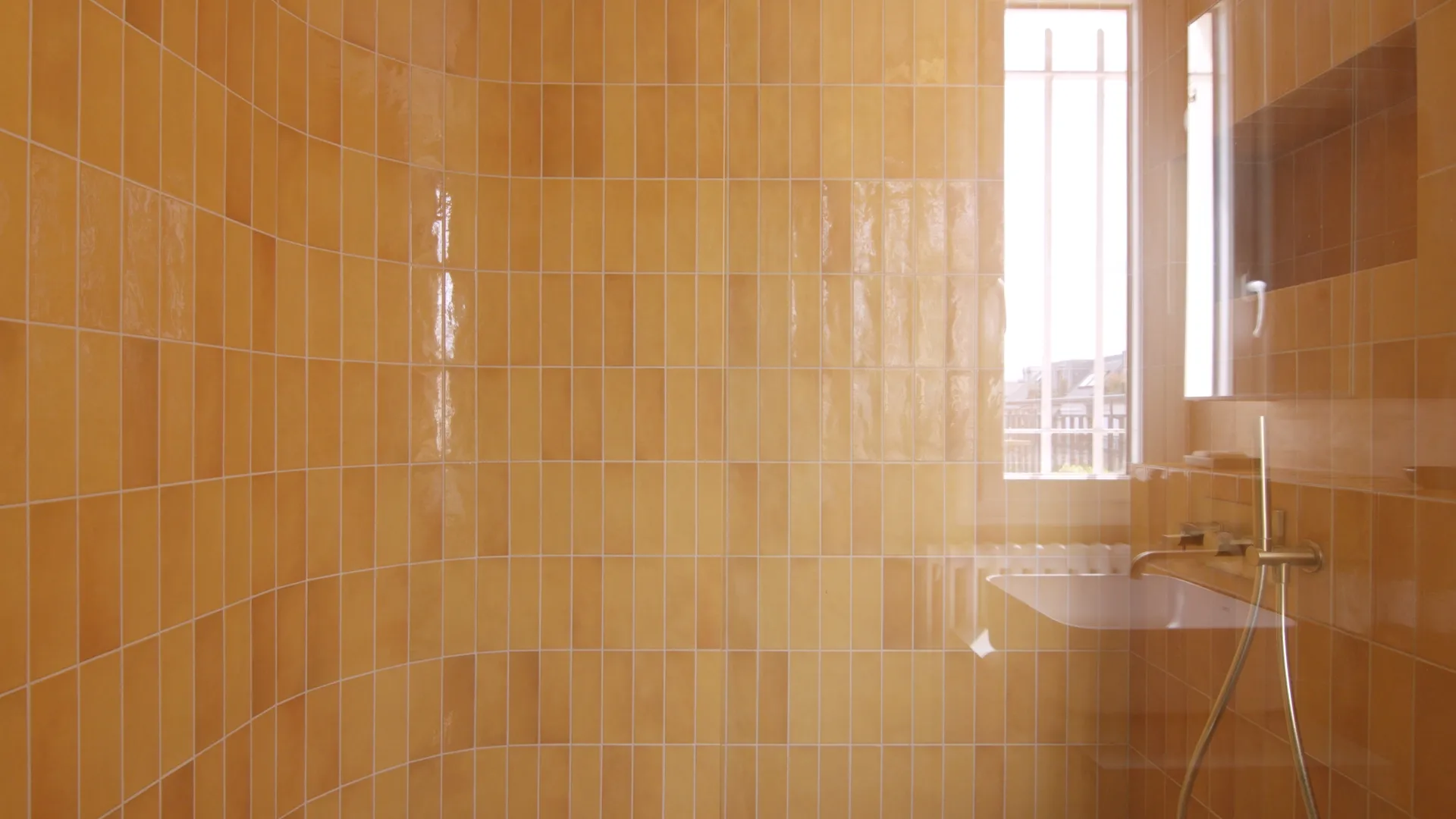
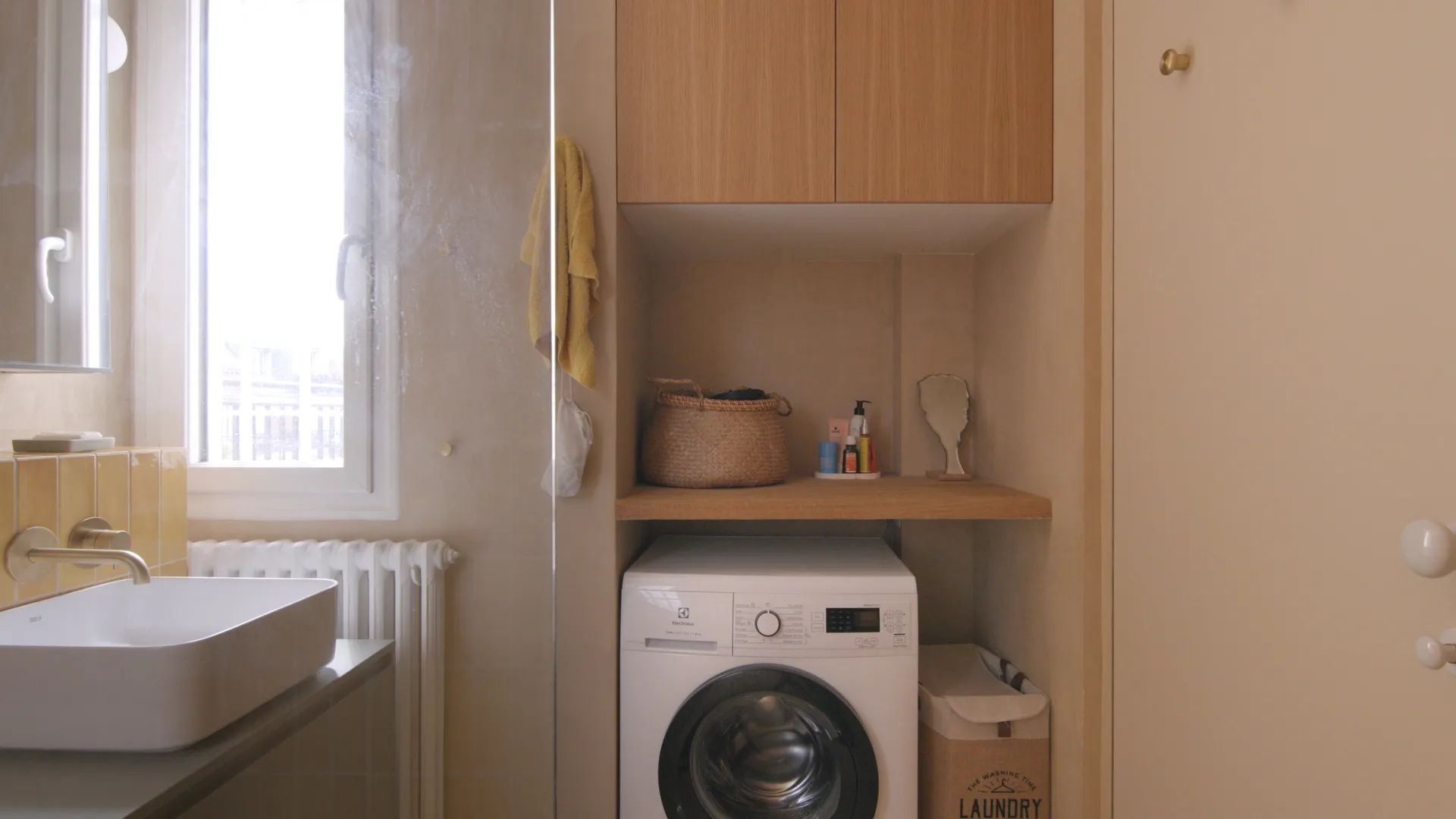
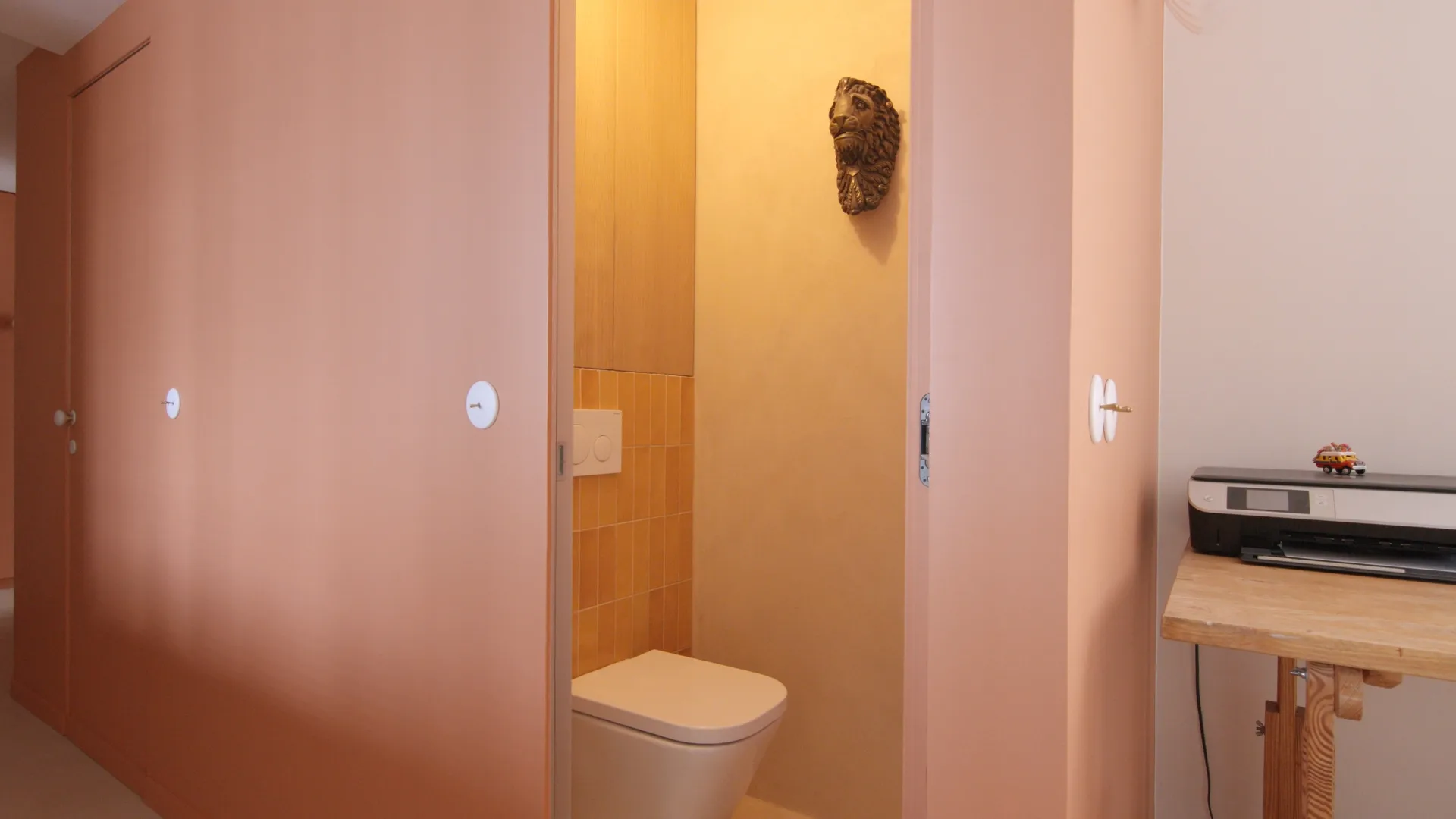

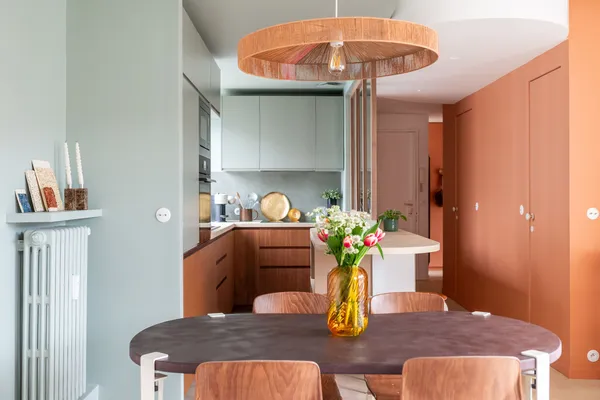
Under the shadow of the Eiffel Tower, Suffren – a 1960s apartment in Paris’ 7th arrondissement – offers a kind of no-frills romanticism. It’s soft, sophisticated, and colourful, too, with curved terracotta walls bringing vibrancy and energy to much of the home. The calming, compact space is the work of interior designer Joséphine Balayn, who was tasked with creating a pied-à-terre that felt “luminous and easy to live in” for a client splitting their time between Paris and the South of France. She achieved this and more by softening rigid lines, drawing in natural light, and using materiality to evoke the familiar warmth of the Mediterranean.
“When we found the apartment, it was very dark,” Balayn says of its original condition. “The rooms felt small and boxed in, and it hadn’t been renovated in over forty years.”. She felt the basic layout worked but opted to replace a kitchen wall with a glass partition to ease transitions between spaces. Tight corners were curved and a custom wraparound unit was designed, providing extra storage and counter space. For both continuity and seemliness, Balayn installed a dropped ceiling with a gentle curve in the entryway to conceal electrical wiring. The same curved form continues over the kitchen and dining area and is mirrored on the floor below, with two contrasting shades of microcement to help define zones.
Throughout the home, subtle cues evoking the charm of summers in the South of France warm the space. “We wanted to bring in the colours and textures that made him think of his family’s sunny countryside home,” Balayn explains. We see this inspiration everywhere in the home – from the terracotta walls and cosy bedroom nook, to the cheerful yellow bathroom tiles with their irregular texture and the family treasures dotting the shelves. “Our client wanted the place to feature some of his family heirlooms,” Balayn says, “so we had to come up with ideas to cleverly mix the traditional pieces with a modern, sleek renovation.”
Balayn also designed a full-height storage unit for the living area, finished in soft beige to match the floor. Among its features is a drawer made specifically to house the client’s electric piano. A solid bronze horse’s head sculpture, inherited by the client, hangs on the bathroom wall; while, in the bedroom, another heirloom artwork hangs, its ornate frame creating a striking contrast against the terracotta wall. Lining the opposite bedroom wall is a custom wallpaper that Balayn created from fashion drawings sourced directly from the client’s family archives. The whimsical, delicate scenes depicting styled caricatures amongst one of the Louvre’s facades offer the finishing touch of personality and playful warmth in this Parisian sanctuary.
Balayn has layered textures and colours throughout the apartment, yet the result is anything but overwhelming. By keeping the original layout largely intact and making only a few strategic changes, Balayn shows how relatively small decisions can completely transform a space. She describes the curve of the walls as “feeling like a hug”, though it might be the entire home that wraps you in its embrace. The sense of balance comes from the way every texture, colour, and object is intentional, blending family history with contemporary design to create a space that feels both cohesive and calm. It is as if a corner of the South of France had been brought to Paris.